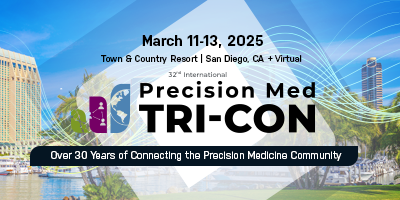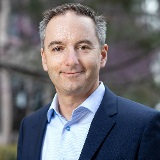2025年 演讲者
Speaker Biographies
Filter by:

Edward Abrahams, PhD, Former President, Personalized Medicine Coalition

Edward Abrahams, Ph.D., is the former President of PMC. Representing innovators, scientists, patients, providers and payers, PMC promotes the understanding and adoption of personalized medicine concepts, services and products for the benefit of patients and the health system. It has grown from its original 18 founding members in 2004 to more than 200 today. Previously, Dr. Abrahams was the Executive Director of the Pennsylvania Biotechnology Association, where he spearheaded the successful effort that led to the Commonwealth of Pennsylvania’s investment of $200 million to commercialize biotechnology in the state. Earlier, he had been Assistant Vice President for Federal Relations at the University of Pennsylvania and held a senior administrative position at Brown University. Dr. Abrahams worked for seven years for the U.S. Congress, including as a legislative assistant to Senator Lloyd Bentsen, as an economist for the Joint Economic Committee under the chairmanship of Representative Lee Hamilton, and as a AAAS Congressional Fellow for Representative Edward J. Markey. The author of numerous essays, Dr. Abrahams serves on the editorial board of Personalized Medicine and has also taught history and public policy at Brown University and the University of Pennsylvania.

Arushi Agarwal, Partner, Health Advances LLC

Arushi Agarwal joined the Health Advances team in 2011 and co-leads the Precision Medicine practice. Her work focuses on supporting biopharma and diagnostic companies in the development and commercialization of precision medicine tests to inform clinical management across the patient journey. Arushi's specific areas of focus include companion diagnostics, liquid biopsy testing and digital biomarkers. Prior to joining Health Advances, Arushi received her Masters in Biomedical Engineering from Columbia University and Bachelors in Biology from the Massachusetts Institute of Technology.

Lisa Alderson, CEO, Adela, Inc.

Lisa Alderson is the CEO of Adela, Inc. Lisa is a mission-driven entrepreneur dedicated to improving patient care and advancing the adoption of precision medicine. She has extensive experience creating and scaling innovative, high-growth businesses at the intersection of technology and healthcare with a focus in genomics, digital health, SaaS, telehealth and molecular diagnostics. Previously, she co-founded and served as the CEO of Genome Medical, the leading genomic care delivery company enabling broad-based access to genomic medicine. She is also a co-founder of Clarified Precision Medicine. Prior, Ms. Alderson served as the Chief Commercial Officer and Chief Strategy Officer of Invitae (acquired by Labcorp), a genetic information company, and was part of the start-up team at Genomic Health Inc. (acquired by Exact Sciences). She was previously president and CEO of Crossloop, (acquired by Nasdaq: AVG), president of Cinema Circle Inc., (acquired by Nasdaq: GAIA) and the former manager of strategic planning at The Walt Disney Co. She has an MBA with distinction from Harvard Business School and a BA from Colorado State University, where she graduated Summa Cum Laude.

Gabriele Allegri, MBA, Vice President, Global Commercial Precision Medicine, Johnson & Johnson Innovative Medicine

Gabriele Allegri is the Vice President of Precision Medicine at Johnson & Johnson Innovative Medicine, based in the United States. He also serves as a board member of the Personalized Medicine Coalition (PMC) and as vice-chair of the Precision Cancer Consortium (PCC), driving advancements in personalized medicine and oncology. Throughout his tenure at J&J, Gabriele has held a range of leadership roles, including General Manager and head of Regional Market Access in Europe. Recognized for his innovative approach, he has led transformative initiatives like J&J’s first integrated teleassistance service for diabetes management, making a lasting impact across immunology, rare diseases, oncology, and neuroscience. Married and a father of two, Gabriele holds a degree in Management Engineering, completed through studies in Italy, France, and Germany, and an MBA from Bocconi Business School in Milan. He began his career in the U.S. at a Big Data startup before moving to Accenture, where he managed European innovation projects. His passion for healthcare and commitment to advancing patient care have defined his career, as he continues to champion innovative solutions and proximity care to elevate standards of care for patients worldwide.

Jim Almas, MD, Vice President and National Medical Director, Clinical Effectiveness, LabCorp

Dr. Almas had years of service as a lab director of large non-profit hospitals. He has worked as a consultant to BCBS-affiliates. Dr. Almas also worked as a Medical Officer at CMS in the Coverage and Analysis Group (CAG) and, before joining LabCorp in 2018, served as the Medical Director of the MolDX Program (at PalmettoGBA).

Emma Alme, PhD, Senior Director, Public Policy, Guardant Health

Emma Alme is the Senior Director of Public Policy for Guardant Health. She leads policy development and strategy across Guardant Health for both oncology diagnostics and cancer screening. She received a PhD in Biochemistry and Molecular Biology from the University of California, San Francisco and has wide-ranging health policy experience including at the National Institutes of Health (NIH), the National Academies of Science, Engineering, and Medicine (NASEM), and the U.S. House of Representatives.
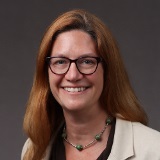
Kristine Ashcraft, MBA, Founder & President, YouScript

Kristine has worked in pharmacogenomics since 2000 and was named one of the 25 leading global voices in precision medicine. She is the Founder and President of YouScript, an award-winning clinical decision support tool that has integrated PGx-guided personalized prescribing in the clinical workflow for over a decade. Kristine has 25+ years of experience in various C-level, board, customer success and business development roles. She has authored multiple publications on the clinical and economic benefits of pharmacogenomic testing and serves on numerous PGx advisory groups including the STRIPE Steering Committee, the FDA collaborative community for pharmacogenomics, CPIC, and the American Cancer Society Cancer Action Network PGx task force. Kristine is committed to catalyzing the adoption of precision medicine.

Mara G. Aspinall, Partner, Illumina Ventures; Professor of Practice, Arizona State University; Editor, Sensitive & Specific: The Testing Newsletter

Mara Aspinall is a healthcare industry leader and pioneer with a commitment to civic involvement. She is a Partner at Illumina Ventures, an independent, global healthcare venture capital firm focused on genomics and precision health investing including diagnostics, life science tools and therapeutics. Aspinall has deep roots in venture investing, having co-founded BlueStone Venture Partners in 2017. BlueStone has a strong portfolio of diagnostic, medical device, and digital health companies in the U.S. Southwest. Throughout her career, Aspinall has spearheaded initiatives to educate payers and policymakers on genomics and personalized medicine. She publishes the popular Sensitive and Specific: The Testing Newsletter and the annual Diagnostics Year in Review. This commitment to expanding knowledge inspired Aspinall to create and co-found the Biomedical Diagnostics master’s degree program at Arizona State University, the only program dedicated exclusively to diagnostics, genetics, and genomics. Previously, Aspinall was President and CEO of Ventana Medical Systems, a billion-dollar division of The Roche Group, (now Roche Tissue Diagnostics), a worldwide leader in the development and commercialization of tissue-based cancer diagnostics, where she led more than two dozen major instrument and assay launches and helped position the company as a global leader in companion diagnostics. Aspinall spent 13 years at Genzyme Corporation, as President of Genzyme Genetics and Genzyme Pharmaceuticals. Aspinall transformed Genzyme Genetics from a small, specialized player to one of the top five laboratories in the U.S. while setting the industry standard for quality testing. The business was sold to LabCorp for ~$1 billion. Aspinall also served as Founder and CEO of On-Q-ity, a start-up diagnostic company dedicated to circulating tumor cells. During the pandemic, Aspinall emerged as a national authority on COVID testing, serving as the principal investigator at Arizona State University on grants from The Rockefeller Foundation, creating TestingCommons.com and EvidenceCommons.com – internationally recognized interactive databases on COVID diagnostics and related research and clinical applications. Aspinall was named Arizona Biosciences Leader of the Year by the Arizona Biotechnology Association and one of “100 Most Inspiring People in Life Sciences” by PharmaVoice magazine. Aspinall has extensive board experience. She has served on multiple public and private company boards in leadership roles over the last ten years. She is currently Chair of the Board of OraSure (OSUR) and serves on the board of BlueCross BlueShield of Arizona. She holds an MBA from Harvard Business School, a BA in International Relations from Tufts University, and is certified in Cybersecurity Oversight from Carnegie Mellon/NACD.

Michael Astion, MD, PhD, Regional Medical Director & Professor, Laboratory Medicine and Pathology, Seattle Children's Hospital and the University of Washington

Dr. Astion is the Director of Regional Laboratories, Director of Point of Care Testing, and Co-Director of Reference Laboratories in the Department of Laboratories at Seattle Children’s Hospital and Professor of Laboratory Medicine and Pathology at the University of Washington. He stepped down in late 2023 from his previous position as the Medical Director of the Department of Laboratories, which he held from 2013-2023. Dr. Astion is the Creator and one of the Founders of PLUGS, the Patient-Centered Laboratory Utilization Guidance Service, a unique service that helps hospital-based and commercial laboratories actively increase the value of lab testing through aligning with patients and the insurance industry. His career, which includes experience in adult medicine and pediatrics is divided between clinical service, teaching, and research and development. He has authored more than 25 software titles, 50 peer-reviewed papers, and 100 editorials and interviews. He is working actively, through grants and intellectual property held by the University of Washington and Seattle Children’s, with the insurance industry in the United States to create utilization management rules for clinical laboratory testing. Dr. Astion is a frequent speaker at professional meetings, where he lectures on issues related to laboratory stewardship and management; laboratory economics and outreach; and medical errors.


Mark Bagnall, CEO, Phenomix Sciences

Mark Bagnall is a biotech entrepreneur and has founded or co-founded 6 companies in the past 10 years. He leverages over thirty years’ experience in senior management and on boards of public and private biotechnology companies. He currently serves as CEO of Health2047 portfolio company, Phenomix Sciences, a data and precision medicine company for obesity. Prior to joining Phenomix, Mark was Chief Operating Officer of Naia Pharmaceuticals and its subsidiary Naia Rare Diseases, companies he co-founded in 2014. Prior to that Mark was Chief Executive Officer Gentura Dx, a Chinese/American diagnostics company which was sold to Luminex in 2012. Before Gentura, Mark was CFO of several public and private biotechnology companies.

Nicholas Banovich, PhD, Associate Professor and Director, Division of Bioinnovation and Genome Sciences, TGen

Dr. Nicholas Banovich is an Associate Professor at the Translational Genomics Research Institute (TGen), where he directs the Division of Bioinnovation and Genome Sciences and TGen's Center for Spatial Multi-Omics (COSMO). Dr. Banovich's research focuses on understanding how gene expression and regulation contribute to human disease. His research program is multi-faceted and includes investigations of chronic lung disease and lung development. For example, his lab identified a novel population of profibrotic cells, termed KRT5-/KRT17+ cells, which are associated with pulmonary fibrosis. He is also interested in the application of CAR T cell therapy for the treatment of brain tumors. A major focus of Dr. Banovich's research program is integrating advanced single-cell RNA sequencing and spatial transcriptomics technologies to generate novel insights into complex human diseases. COSMO was created to support and facilitate these efforts within TGen and for external collaborators. Dr. Banovich received a B.S. in Anthropology from Arizona State University and a Ph.D. in Human Genetics from the University of Chicago.

Lourdes Barrera, PhD, Executive Director, Global Medical Affairs Oncology—Precision Medicine, Merck

Dr. Lourdes Barrera is a Biomedical Researcher and Scientist with in-depth experience leveraging expertise in immunology, medical affairs, precision medicine, diagnostic solutions, and testing technologies. Dr. Barrera holds PhDs in Biological Sciences (Immunology) and in Philosophy of Science (Science Communication) and a master’s degree in Molecular Biology. Dr. Barrera has developed an outstanding career as a medical researcher in respiratory diseases (IPF, HP, COPD) and lung cancer for 20 years. First author of more than 40 scientific peer reviewed publications and multiple congress presentations and scientific talks since 2002. She has had a long-standing relationship with diagnostic and pharmaceutical companies for which she has performed training courses as well as consulting worldwide. Dr. Barrera has a wealth of experience and proven talent leveraging both biomedical expertise and business acumen to drive pharma industry-leading performance. She has held positions as Country Diagnostic Lead, Global Diagnostic Capabilities Director, Global Medical Affairs Lead for Immuno-oncology and most recently, Global Precision Medicine Senior Director at Novartis.

Tomasz M. Beer, MD, CMO & Vice President, Multi-Cancer Early Detection, Exact Sciences

Dr. Tomasz (Tom) Beer serves as Chief Medical Officer for Multi-Cancer Early Detection at Exact Sciences Corporation since August 2022. Dr. Beer also serves as Adjunct Professor of Medicine at the OHSU Knight Cancer Institute, where he sees men with prostate cancer. Until August 2022, Dr. Beer was the Grover C. Bagby Endowed Chair for Prostate Cancer Research at the OHSU Knight Cancer Institute, where he led the Prostate Cancer Research Program, encompassing basic research, translational research, clinical trials of novel therapeutic strategies in prostate cancer, and studies aimed at enhancing cancer survivorship. He has authored or co-authored more than 280 peer reviewed articles, including investigations of targeted therapies and immunotherapies in prostate cancer, among them vitamin D receptor agonists, androgen receptor antagonists, PSMA targeted radiopharmaceuticals, clustering targeting agents as well as cancer vaccines, CTLA-4 and PD-1 inhibitors, and others. He led the global randomized trial of enzalutamide vs. placebo that demonstrated substantial improvements in overall and progression-free survival as well as quality of life and served as the basis for a global change in the standard of care for advanced prostate cancer. Dr. Beer also served as Deputy Director of the OHSU Knight Cancer institute, and NCI designated Comprehensive Cancer Center and Chief Medical Officer for the Center for Early Detection Advanced Research (CEDAR) within the Knight where he worked closely with a diverse leadership team to speed advances in the early detection of lethal cancers. At CEDAR, Dr. Beer fostered collaborations between clinicians, engineers, and cancer biologists to advance discoveries in early detection of cancer and lead clinical trials of multi-omic blood-based cancer early detection tests.
.tmb-0.jpg)
Suzanne Belinson, PhD, Vice President, Commercial Markets, Tempus, Inc.

Suzanne Belinson, PhD, MPH, is Vice President of Commercial Markets at Tempus Labs Inc. Tempus is a technology company that is making precision medicine a reality by gathering and analyzing clinical and molecular data at scale. Her role focuses on commercial growth for Tempus through the development and execution of partnerships with managed care organizations aiming to improve healthcare value by leveraging data. Before joining Tempus, Dr. Belinson served as Executive Director, Clinical Markets, at the Blue Cross Blue Shield Association. In addition to leading the sales and market development for products and services developed within the Office of Clinical Affairs, Dr. Belinson led the day to day operations of Evidence Street. As part of the leadership team in the Office of Clinical Affairs she also spent time focused on the development of emerging programs and services that enhance value and brand leadership for the independent BCBS Plans. Dr. Belinson received her bachelor’s degree from Cleveland State University, and a PhD in Epidemiology from the University of North Carolina at Chapel Hill. She also holds a Masters in Public Health from the University of Pittsburgh.

Cynthia A. Bens, Senior Vice President, Public Policy, Personalized Medicine Coalition

Cynthia A. Bens leads the Personalized Medicine Coalition’s policy development and advocacy efforts and serves as its primary liaison with the U.S. Congress and federal agencies. Cynthia is responsible for implementing research, regulatory and reimbursement policy strategies that promote the understanding and adoption of personalized medicine concepts, services and products to benefit patients and the health system. Before joining PMC, Cynthia spent more than a decade at the Alliance for Aging Research as its Vice President of Public Policy where she guided its federal policy work, represented the organization in multiple national coalitions and directed all aspects of coalitions led by the Alliance. She has successfully advanced policies to expedite the development of interventions for neurological diseases and physical frailty; to remove access barriers for cardiovascular disease treatments; and to enhance the quality of care for older adults living with multiple chronic conditions. Through various other positions in the private sector and on Capitol Hill, she has acquired more than 20 years of experience researching and analyzing federal legislation and regulations related to health care, education, telecommunications, and international trade. Cynthia serves on the board of the Alliance for a Stronger FDA, where she was a past president. She is also a founding steering committee member of an FDA-recognized Collaborative Community known as STRIPE, the Partnership to Improve Patient Care, and the Friends of the National Institute on Aging. She holds a bachelor's degree from New York University with concentrations in political science and women’s studies.

Sivan Bercovici, PhD, CTO & Chief Business Officer, Karius, Inc.

Sivan is a recognized innovator and entrepreneur in artificial intelligence who has dedicated nearly two decades to pioneering the development of complex computational and data platforms. His key contributions include the development of novel machine-learning models tackling significant challenges in human disease. At Karius, he spearheaded the development of the foundational computational platform underlying the Karius Test, elevated the biomarker discovery program, and was central to forming and nurturing key strategic partnerships, furthering the company’s impact in the medical field. Prior to Karius, Sivan was a co-founder and Chief Technology Officer at Lifecode, where he led the development of the analytical platform and validation of several clinical assays across oncology and rare diseases. He holds a Ph.D. in Computer Science from the Technion – Israel Institute of Technology, and continued to Stanford’s Artificial Intelligence Lab to pursue his post-doctoral research.

Gabriel Bien-Willner, MD, PhD, Medical Director, MolDx, Palmetto GBA

Dr. Bien-Willner is the Medical Director of the MolDX program at Palmetto GBA, a Medicare Administrative Contractor (MAC). MolDX seeks to understand the molecular testing landscape to implement payer controls, coverage, and to set policy for affiliated MACs, which currently cover 28 states. He is a leader in the Precision Medicine space and practices as a Board-certified Anatomic Pathologist and Molecular Genetic Pathologist. Throughout his career, he has been active in research, development, and advancement of molecular diagnostic services, specifically next-generation sequencing. He has worked closely with clinicians to develop clear clinical diagnostic and treatment pathways directing Precision Medicine programs for community cancer centers. Dr. Bien-Willner received his MD and PhD degrees from Baylor College of Medicine, with a PhD in Human Molecular Genetics. He completed his residency, fellowship, and attained a faculty appointment at Washington University in St. Louis prior to leadership roles in laboratory and biotech companies before joining Palmetto GBA.

Andrea Bild, PhD, Program Manager, Advanced Research Projects Agency for Health (ARPA-H)

I lead health initiatives in translational medicine and oncology, clinical trial infrastructure, biomarker development, and biomedical data tool generation. I am the Director of the Cancer Systems Biology Center at the City of Hope Comprehensive Cancer Center, where I am a Professor of Oncology and Therapeutics. I have over 20 years of experience performing cancer research and leading large, multi-site national teams responsible for developing and executing translational initiatives that span pre-clinical studies to clinical trials. I have managed program budgets over hundreds of millions of dollars with high clinical impact, and have worked with ARPA-H, a new US government institute focused on transformative research to drive biomedical health.

Clarisa Blattner, Senior Director, Revenue and Payor Optimization, XiFin, Inc.

Clarisa Blattner is the Senior Director of Revenue and Payor Optimization at XiFin, Inc. She serves as a subject matter expert in revenue cycle management (RCM) and payor and market strategies, focusing on achieving operational efficiencies and maximizing revenue. With over 25 years of experience in the healthcare sector, Clarisa has an extensive background in revenue cycle management, particularly within the healthcare industry. Previously, she oversaw the billing and reimbursement operations for the outsourced billing department. She cultivated and directed a large team of revenue cycle personnel to service diagnostic providers in multiple specialties. She has served in leadership roles at prominent organizations such as US Labs, Clarient, and MDxHealth. In her current role, Clarisa works closely with new and existing customers to implement and operate innovative capabilities tailored to their unique needs. Leveraging her deep knowledge of market access and payor policy, she functions as a trusted advisor, offering recommendations that maximize the utility of XiFin’s products and services to achieve revenue targets. Beyond her day-to-day responsibilities, Clarisa is committed to sharing her industry expertise through public speaking engagements and networking events. She holds a Bachelor of Science degree in Biological Sciences from the University of Southern California, as well as a certificate in Business Administration. Additionally, she is credentialed as a Certified Coding Specialist (CCS) through AHIMA and as a Certified Professional Coder (CPC) through AAPC. Clarisa’s leadership and subject matter expertise make her a pivotal asset to XiFin and its clients, helping them navigate the complexities of the modern healthcare revenue landscape.

Burns Blaxall, PhD, Senior Vice President, Precision Medicine, Aranscia; Adjunct Professor, University of Cincinnati

Dr. Burns C. Blaxall is Senior Vice President of Precision Medicine at Aranscia, where he is catalyzing the adoption of Precision Medicine across health systems, providers, payers and employers. Most recently he served as the founding Executive Director of Precision Health at The Christ Hospital Health Network, developing a nationally recognized program for proactive, individualized care. Previously, he founded and led translational and clinical research centers, serving as principal investigator on dozens of NIH and foundation grants as well as chairing peer review panels for the NIH, various foundations and several editorial boards. He received his PhD in Pharmacology from the University of Colorado and has held academic faculty and leadership positions at Duke University, the University of Rochester and the University of Cincinnati/Cincinnati Children’s Hospital, where he remains an Adjunct Professor. Dr. Blaxall is an elected fellow of numerous professional societies, holds several patents, has given > 200 invited lectures across five continents and has published nearly 100 peer-reviewed manuscripts. He has received extensive honors and awards and holds several leadership roles in professional societies and boards for Precision Medicine and therapeutic discovery.

Joel Braunstein, MD, Co-Founder & CEO, C2N Diagnostics

Dr. Braunstein is Co-Founder and CEO of C2N Diagnostics and has led the company's growth and commercial efforts since its inception. Dr. Braunstein has played a senior executive role in numerous emerging life sciences companies since 2004. He received his M.D. with Highest Distinction from Northwestern University Medical School in 1996. Subsequently, he trained in internal medicine at the Brigham and Women’s Hospital, Harvard Medical School, and was a Fellow in Cardiovascular Medicine and Robert Wood Johnson National Clinical Scholar at the Johns Hopkins Medical Institutions. Additionally, he completed an MBA with management and health policy focus and maintained an Assistant Professorship in Cardiology at Johns Hopkins University. In 2010, he was named a Distinguished Alumnus of Johns Hopkins University.

Stacey Brown, Market Access Lead, Optum Genomics

Stacey leads Market Access for Optum Genomics, overseeing all related engagements with diagnostic company clients. Stacey has a couple decades' worth of payer relations and market access experience in the molecular diagnostic space. Prior to joining Optum, she spent many years at Myriad Genetics, in roles with increasing responsibility for securing coverage and reimbursement with regional, national, and government sponsored payers. Stacey went on to spend many years at Foundation Medicine, leading Market Access, and played a large role in the company successfully completing the FDA and CMS parallel review of the first comprehensive genomic profiling companion diagnostic assay. Stacey has also spent time at Sera Prognostics and GeneDx.

Rebecca Burnham, PhD, Senior Product Manager, DeciBio Consulting LLC

Rebecca is a Senior Product Manager at DeciBio Consulting, a strategy consulting and market intelligence firm specializing in precision medicine. Rebecca leads DeciBio’s market reports division, analyzing emerging tools and technologies supporting precision medicine development, from oncology diagnostics to discovery research platforms. Prior to DeciBio, Rebecca received her PhD in Molecular Pharmacology from Emory University and B.A. in Neuroscience from Hamilton College.

Shawn Carlson, Vice President, Head of Market Access, Roche Diagnostics

Shawn Carlson is the Head of US Market Access for Roche Diagnostics Corporation. He leads a team that develops Access and Policy strategies that will enable us to achieve our ambitious Diagnostics Vision of doubling patient access to novel, medical value solutions by 2030. The US Market Access team shapes and influences public, private/commercial health systems to ensure rapid, broad, sustainable patient access to the organization’s products and solutions. The team ensures payers’ needs are considered in the global product development processes, including development of product customer requirements, clinical utility evidence generation and health economic studies. Prior to joining Roche, he led Market Access teams in IVD/LDT diagnostics, pharmaceuticals, vaccines and medical devices.
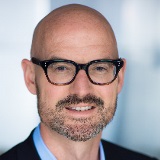
David Cavanaugh, Founding Partner, DeciBio Consulting LLC

David Cavanaugh has 20+ years working at the intersection of business and science within precision medicine. He has first-hand knowledge of pharmaceutical R&D through his 7+ years of work as a bioinformatician within leading biotech companies. Since completing his MBA at the Kellogg School, he has been working as a strategy consultant, first at L.E.K. Consulting and then at DeciBio Consulting, which he co-founded. His specialty is advising diagnostic and pharmaceutical companies to bring new products / innovations to market, drive product / market fit, and crafting strategies that drive sustained competitive advantage.

Brian Caveney, MD, JD, MPH, CMO & CSO, President, Early Development Research Laboratories, Labcorp

Dr. Brian Caveney is Chief Medical and Scientific Officer and leads Labcorp’s global Early Development Research Laboratories teams and several enterprise capabilities, including India operations. He oversees medical and scientific affairs, oncology, cell and gene therapy, and quality. His leadership consolidates scientifically-focused business aspects under one umbrella to enhance our culture of science and innovation. Since joining Labcorp in 2017, Brian has been pivotal in accelerating growth in Diagnostics and advancing our medical and scientific strategy. He has expanded diagnostic testing services, introduced new products in key therapeutic areas, and broadened LabCorp hospital strategy. Notably, Brian spearheaded the expansion of COVID-19 PCR testing accessibility and effectively communicated testing and treatment options to the public, policymakers, and customers. As Chief Medical Officer, Brian drives Labcorp’s clinical strategies, focusing on health policy, regulatory efforts, value-based care models, and clinical standards in the evolving healthcare payment landscape. Before Labcorp, Brian held various positions at Blue Cross & Blue Shield of North Carolina, including Chief Medical Officer. His responsibilities encompassed healthcare program strategy, care management, network provider contracting, medical coverage policy, medical expense initiatives, care quality, and pharmacy. Prior to this, he was a practicing physician and assistant professor at Duke University Medical Center, engaging in teaching, research, editing, and administrative roles.

Vikram Chaudhery, PhD, Partner, Genoa Ventures

Vikram Chaudhery is a Partner at Genoa Ventures and Co-Founder & President of General Inception, with a proven track record as a life sciences investor, entrepreneur, and business leader. At Genoa, he has led investments and serves on the Board of Directors of companies like Epitel, SimBioSys, Attune Neurosciences and BrainBox Solutions, achieving six FDA clearances for AI-powered diagnostic and medical device products. His portfolio investments are driving innovations transforming patient care in oncology, neurology, and precision medicine. As Co-Founder of General Inception, Vikram has helped launch over 50 companies since 2020, with over $250M in external funding, including university spin-outs translating academic breakthroughs into market-ready solutions. General Inception specializes in bridging the gap between discovery and commercialization, particularly in AI-driven advancements in therapeutics, diagnostics, and engineered biology. Previously, Vikram headed Life Sciences at Lam Research and advised on life sciences strategy at McKinsey & Co. He holds a Ph.D. in Electrical Engineering from the University of Illinois at Urbana-Champaign.

Charles Chiu, MD, PhD, Professor, Laboratory Medicine and Medicine/Infectious Diseases; Director, UCSF-Abbott Viral Diagnostics and Discovery Center; Associate Director, UCSF Clinical Microbiology Laboratory, UCSF School of Medicine

Charles Chiu, MD, PhD is Professor of Laboratory Medicine and Medicine, Division of Infectious Diseases at University of California, San Francisco, Director of the UCSF-Abbott Viral Diagnostics and Discovery Center (VDDC), and Associate Director of the UCSF Clinical Microbiology Laboratory. Chiu currently heads a translational research laboratory focused on next-generation sequencing assay development for infectious disease diagnostics, discovery and investigation of emerging pathogens, including Borrelia burgdorferi (Lyme disease), Ebola virus, enterovirus D68, and Zika virus, and clinical/public health applications of new diagnostic technologies such as nanopore sequencing. He is also actively developing RNA sequencing approaches to detect and identify diagnostic profiles of the body’s response to infection. His work is supported by funding from the National Institutes of Health (NIH), Abbott Laboratories, Department of Defense, NASA/Translational Research Institute, philanthropic grants (Charles and Helen Schwab and Steven and Alexandra Cohen Foundations), and the California Initiative to Advance Precision Medicine. Dr. Chiu has authored more than 80 peer-reviewed publications, holds over 15 patents and patent applications, and serves on the scientific advisory boards for Therabio, Inc., and Mammoth Biosciences, Inc.

Ezra Cohen, MD, CMO, Oncology, Tempus Labs, Inc.

Ezra Cohen, MD joined Tempus Labs in May 2023 as the CMO, Oncology. Dr. Cohen is a leading medical oncologist and cancer researcher. Prior to Tempus he was the Chief of the Division of Hematology-Oncology as well as the Associate Director of Clinical Science at UCSD Moores Cancer Center. Dr. Cohen obtained his medical degree from University of Toronto in 1990 and trained in internal medicine at Albert Einstein College of Medicine. Subsequently, he completed a hematology/oncology fellowship at the University of Chicago and joined the faculty there in 2002. He joined the faculty at UCSD in 2014 as full professor.

Jared Conley, MD, PhD, MPH, Assistant Professor, Harvard Medical School; Associate Director, Healthcare Transformation Lab

Dr. Jared Conley is an Assistant Professor at Harvard Medical School and emergency physician at Mass General Hospital. He serves as the Associate Director of the Healthcare Transformation Lab, where he leads a team of clinicians and engineers to enhance the quality and affordability of healthcare through technology and innovation. His work explores opportunities to enhance healthcare delivery at home—and the enabling opportunity for digital health to improve the quality, safety, cost, and scale of such care. His work has been featured in various medical journals, including NEJM Catalyst and JAMA Internal Medicine, as well as new outlets such as Reuters and Medscape. His recent article on technology-enabled hospital at home was named one of the top articles of 2022 by NEJM Catalyst. His clinical training was obtained at Harvard (MGH/BWH) and he completed a fellowship in healthcare innovation at Stanford.

Christopher Conn, PhD, Director, Global Diagnostic Strategy, Precision Medicine, Amgen

Christopher Conn is a Director and Diagnostics Strategy Lead in the department of Precision Medicine at Amgen where he is responsible for developing and implementing end-to-end diagnostic development programs spanning early to late phase clinical development. Christopher has over 15 years of cross-functional experience in the diagnostic and pharmaceutical industries from product concept development to commercialization. Christopher has led the companion diagnostic efforts for numerous programs in the biotech and pharmaceutical industries in both oncology and non-oncology therapeutic areas. Christopher has a PhD in cell and molecular biology from the University of Cincinnati College of Medicine and has completed postdoctoral training at St. Jude Children's Hospital and the University of Colorado.

Fernando Cruz-Guilloty, PhD, Director, Precision Medicine & Diagnostics, Johnson & Johnson Innovative Medicine

Fernando is a proven leader in Precision Medicine, Oncology, Immunology and Companion Diagnostics (CDx). Fernando obtained a B.S. degree in Industrial Biotechnology from the University of Puerto Rico-Mayaguez and a Ph.D. from Harvard Medical School. Following postdoctoral studies at the Bascom Palmer Eye Institute, he started his industry career in the field of in vitro diagnostics at Immucor and DxTerity. Transitioning to biopharma at Amgen, he served as a Global Diagnostics Lead, leading the collaboration with Guardant Health to validate Guardant360 as a CDx to support the accelerated approval of sotorasib (Lumakras), a first-in-class KRAS G12C inhibitor in Non-Small Cell Lung Cancer (NSCLC). Currently, Fernando is Director of Precision Medicine & Diagnostics at Johnson & Johnson, where he leads a cross-functional team developing end-to-end diagnostic strategy. In this role, he has led successful global CDx submissions supporting amivantamab (Rybrevant), a first-in-class EGFR-MET bi-specific antibody in NSCLC.

Jennifer Dien Bard, PhD, D(ABMM), Director, Microbiology and Virology, Children’s Hospital Los Angeles; Professor, Pathology and Laboratory Medicine, Keck School of Medicine, University of Southern California

Dr. Jennifer Dien Bard, is the director of the clinical microbiology and virology laboratories at Children’s Hospital Los Angeles (CHLA) and Professor of Pathology with Clinical Scholar designation at the University of Southern California Keck School of Medicine. Dr. Dien Bard’s research interests include studying the application of rapid diagnostics in the clinical setting to determine clinical utility. She has authored more than 80 scientific peer-reviewed publications and is a frequent speaker on the topics of molecular diagnostics.

Shivang Doshi, Director, Market Access Strategy, Cepheid

Shivang Doshi currently serves as the Director of Market Access Strategy at Cepheid, where he focuses on reimbursement strategy, evidence development and payer value messaging for Cepheid's Sexual & Women Health and Virology portfolio. Prior to joining Cepheid, Shivang was the Vice President of Global Payor Relations and Reimbursement at Paige, where he led evidence generation and payer engagement to drive coverage and reimbursement for AI-enabled diagnostics. Shivang is a seasoned market access and commercialization leader with 15 years' experience spanning life sciences consulting, diagnostics and pharma.

Nicholas C. Dracopoli, PhD, CSO, DELFI Diagnostics

Nicholas Dracopoli, Ph.D. is Chief Scientific Officer at Delfi Diagnostics. Previously, his work focused on oncology translational science at PGDx, Janssen and Bristol Myers Squibb. Prior to joining the pharmaceutical industry, he spent five years in the biotechnology industry at Sequana Therapeutics. Nic obtained his bachelor’s degree and doctorate from the University of London and completed post-doctoral fellowships at the Memorial Sloan-Kettering Cancer Center in New York City, NY and the Massachusetts Institute of Technology (MIT) in Cambridge, MA. Subsequently, he served as an Assistant Director at the Whitehead/MIT Genome Center and as a Section Chief at the National Center for Human Genome Research at the National Institutes of Health, Bethesda, MD. Nic has authored more than 70 scientific publications and has extensive experience in the fields of genomics, molecular biology and cancer research.

Robert Dumanois, Director, Reimbursement Strategy, Thermo Fisher Scientific

Rob leads reimbursement and HEOR activities for Thermo Fisher Scientific’s clinical sequencing division. Experienced in all facets of NGS testing’s coverage, coding, and billing – Rob works with lab and pharma clients to explain the complex and often contradictory U.S. environment and devise pathways to achieve their desired goals. He also worked with Oncomine Dx Target Test: the first FDA-approved next-generation sequencing (NGS) in vitro diagnostic test for non-small cell lung cancer. This companion diagnostic is covered nationally by Medicare and dozens of commercial payers. Rob joined Thermo Fisher in 2012 through an acquisition of Navigenics, where he led the development and growth of payers and employers. Rob was also a Territory Vice President at RelayHealth, with duties that included payer-facing sales of secure messaging and e-prescribing. He also held senior sales and sales management positions with UnitedHealthcare.

Anna Elz, MSc, Research Manager, Innovation Lab, Immunotherapy Integrated Research Center, Fred Hutch Cancer Center

Anna Elz, MSc. joined FHCC to build the Fred Hutch Innovation Lab in March 2020. Most of her molecular genetics career has revolved around utilizing new technology to further research goals while troubleshooting protocols with difficult samples. FHIL lured her away from fisheries genomics to begin testing cutting-edge spatial and single-cell transcription profiling approaches for immuno-oncology research within the Immunotherapy Integrated Research Center. Since FHIL’s inception, Anna has led pilot projects with numerous labs, benchmarked competing platforms, and optimized protocols and procedures to help accelerate research.

Ruth Etzioni, PhD, Professor, Public Health Sciences, Fred Hutch Cancer Center

Dr. Ruth Etzioni is Professor of Biostatistics at the Fred Hutch Cancer Center in the Division of Public Health Sciences where she holds the Rosalie and Harold Rea Brown Endowed Chair. Dr. Etzioni received her PhD in Statistics from Carnegie-Mellon University. She has studied the benefit-harm tradeoffs of cancer early detection for more than 25 years and serves as a member of early detection guidelines panels for the National Comprehensive Cancer Network, the American Urology Association, and the American Cancer Society. Dr Etzioni's group of biostatisticians and cancer modelers was the first to quantify the frequency of overdiagnosis in prostate cancer screening and in 2022 published a definitive study of overdiagnosis associated with breast cancer screening in the US. She is a fellow of the American Statistical Association and recipient of an NCI Outstanding Investigator Award for her research in the area of novel cancer diagnostics.

Shawn Fahl, VP Lab Operations, Cell Services & R&D, Biospecimens, Discovery Life Sciences

Dr. Fahl heads the lab operations of cell biology Services, R&D, and biospecimens at Discovery Life Sciences. He earned his PhD in Microbiology from the University of Virginia and completed a postdoctoral fellowship at Fox Chase Cancer Center. With expertise in transcriptional regulation of lymphocyte development, Dr. Fahl joined Discovery in 2017 to pioneer analytical pipelines for single-cell evaluation of primary human biospecimens.

Peter Foley, CEO and Founder, LetsGetChecked

Peter Foley is the CEO and Founder of LetsGetChecked, a global healthcare solutions company that provides the tools to manage health from home. Prior to LetsGetChecked, Peter was Director of The Health Partnership, an international consultancy group specializing in healthcare strategy. He also participated in the Corporate Banking Graduate Program at KBC Bank and served as an analyst for Aspen Healthcare. Peter holds a law degree from Dublin Business School in Medical and Company Law and received his Master’s in ICD-10 Coding from University College Dublin.

John L. Fox, MD, Senior Medical Director for the Americas, Illumina, Inc.

John Fox, MD MHA, is currently the Senior Medical Director of the Americas, Market Access, for Illumina, where he is accountable for working with payers and employers to expand access to genomic testing and personalized medicine. He served as the Associate Chief Medical Officer at Priority Health, a provider-sponsored health plan with over 1,200,00 members from June 2000 through May 2019. He was responsible for medical and pharmaceutical technology assessment, use of medical resources, case management, and physician pay-for-performance programs. He was also responsible for development of new programs, including shared decision-making, digital therapeutics, advanced care planning, integrated specialty pharmacy program, surgical optimization initiatives, value-based benefit designs, and contracts, oncology medical home programs, and personalized genomic medicine initiatives. In June 2019 he became the Vice President of Clinical Transformation of Spectrum Health Systems, the parent company for Priority Health, and the Executive Medical Director for the West Michigan ACO, a clinical collaboration between Spectrum Health providers and Answer Health, the largest independent physicians organization in west Michigan.

Steve Gardner, PhD, CEO and Co-Founder, PrecisionLife

Steve is a serial technology entrepreneur with over 25 years of experience developing and commercializing ground-breaking data science and informatics in the healthcare, life sciences, and agri-food sectors. Never afraid to innovate, Steve has an established track record in building world-class companies, teams and products working at senior levels in the UK, EU and US for Fortune 500 and start-up companies. He is a former Global Director of Research Informatics for Astra A/B and has consulted with drug discovery and safety teams in over 20 biopharma companies.

Paul Gerrard, MD, Head, Global Market Access and Reimbursement, PathAI

Paul is a highly regarded physician and healthcare executive with deep experience in both the academic and patient care spaces. He offers clients critical insights across a wide range of clinical areas and healthcare technologies, and provides guidance on Medicare policy and regulatory requirements. Paul also has significant experience in health outcomes research and scientific computing. Before joining McDermottPlus, Paul had a varied career spanning academia, private practice, and Medicare policy. After leaving academia, he established and ran his own medical practice serving patients in addition to advising large institutions on utilization management and quality improvement before becoming a chief medical officer at Palmetto GBA and MolDX director of clinical science leading coverage and payment determinations for new molecular medicine technologies. In this role, he was instrumental in forging consensus among Medicare contractors on emerging and sometimes controversial areas of medicine in a highly visible program, and served as a primary point of contact between MolDX and the Centers for Medicare & Medicaid Services. Paul now works for McDermott+ Consulting assisting manufacturers and health care providers in bringing innovative patient care products to market.

Hilary Gee Goeckner, MSW, Director, State and Local Campaigns, Access to Care, American Cancer Society Cancer Action Network (ACS CAN)

Hilary Gee Goeckner, MSW is director of state and local campaigns for the American Cancer Society Cancer Action Network (ACS CAN), the advocacy affiliate of the American Cancer Society. In this role she leads work with ACS CAN staff and coalition partners across the country to improve access to comprehensive biomarker testing, clinical trials, fertility preservation and other health care access issues. Prior to this role, Hilary served as the Kansas government relations director for ACS CAN, leading statewide advocacy efforts promoting evidence-based policy and legislative solutions designed to eliminate cancer as a major health problem. Before joining ACS CAN, Hilary served as director of health policy at Kansas Action for Children. She holds a bachelor’s degree in anthropology and global health from Williams College and a master’s degree in social work from Boston College. She lives in San Diego with her husband and two children.

Emmanuel Gorospe, MD, MPH, FACG, FASGE , Gastroenterology Medical Director, Castle Biosciences

Dr. Emmanuel Gorospe currently serves as gastroenterology medical director at Castle Biosciences. Prior to joining Castle, he held various roles in drug and medical device development, including serving as chief medical officer at a clinical investigative site network, medical director at a clinical research informatics company and clinical investigator for multiple FDA-regulated clinical trials. Prior to his career in clinical research, he held leadership roles in building interventional endoscopy service lines at regional referral hospitals and managed ambulatory surgical centers.
Dr. Gorospe is board certified in internal medicine and gastroenterology and has held the academic rank of clinical professor of medicine. He is also a published clinical investigator in Barrett’s esophagus, gastrointestinal cancers and novel endoscopic technologies, and has authored or co-authored 190 peer-reviewed articles, book chapters and abstracts.
Dr. Gorospe completed his internal medicine residency training at Johns Hopkins University in Baltimore, MD, and gastroenterology and interventional endoscopy fellowships at Mayo Clinic in Rochester, MN. He is a fellow of the American College of Physicians, American College of Gastroenterology and the American Society for Gastrointestinal Endoscopy.

Erin H. Graf, PhD, D(ABMM), Associate Professor of Laboratory Medicine and Pathology; Co-Director, Microbiology Laboratory, Mayo Clinic Arizona

Erin H. Graf, Ph.D., D(ABMM) is an Associate Professor and Co-Director of Microbiology at the Mayo Clinic Arizona. She was formerly the Director of the Infectious Disease Diagnostics Laboratory at the Children’s Hospital of Philadelphia and an Assistant Professor of Clinical Pathology at the Perelman School of Medicine at the University of Pennsylvania. Dr. Graf completed her Ph.D. in Cell and Molecular Biology at The University of Pennsylvania studying HIV latency. She then went on to complete an ASM accredited postdoctoral training program in medical and public health microbiology at ARUP Laboratories and the University of Utah. Dr. Graf is board certified in medical microbiology. Her research interests include the applications of next generation sequencing and metagenomics for diagnostic and epidemiologic investigations, as well as emerging rapid diagnostic technologies paired with diagnostic stewardship.

Elliott Green, CEO & Co-Founder, Dandelion Health

Elliott Green is the co-founder and CEO of Dandelion Health—a real-world data and clinical AI platform powering next-generation precision medicine and personalized care. His career has spanned finance and healthcare technology, culminating in executive roles within healthtech startups focused on payers, providers, life sciences, and healthcare data. Elliott brings an in-depth understanding of the operational components of the U.S. payer, provider, and life sciences ecosystems and an ability to establish and manage complex institutional partnerships. He has taken all of this experience into his latest AI-focused venture, Dandelion, where he drives impact in the transition to precision medicine and personalized care.

Dina Greene, PhD, Clinical Professor, University of Washington

Dina Greene, PhD, DABCC, is a Clinical Professor in the Department of Laboratory Medicine and Pathology at the University of Washington. She serves on several committees and working groups for organizations including the Association for Diagnostic Laboratory Medicine (ADLM), College of American Pathology (CAP), and the International Federation of Clinical Chemistry (IFCC). Dr. Greene serves as an Associate Editor for the Journal of Applied Laboratory Medicine (Oxford Press), a Section Editor of Clinical Research for Heliyon (Cell Press), and additionally serves on the Editorial Board for the Canadian Journal of Cardiology (Elsevier). Dr. Greene has published over 130 scientific papers and is internationally recognized for her work on gender inclusive laboratory medicine. Her clinical research studies explore the application and effects of laboratory diagnostics, with an emphasis on how social demographics impact clinical outcomes. In line with her clinical focus, Dr Greene is passionate about designing operational strategies for more inclusive laboratory medicine.

Jonathan D. Grinstein, PhD, North America Editor, Inside Precision Medicine

After ten years of biomedical research, Jonathan decided to leave the field and pursue a career in science writing and communication. Jonathan has written extensively about biotech startups and the inner workings of state-of-the-art biomedical diagnostics and treatments for publications like Scientific American and Genetic Engineering and Biotechnology News (GEN). As North American Editor for Inside Precision Medicine, Jonathan investigates the most recent research and developments in a wide range of human healthcare topics and emerging trends, such as next-generation diagnostics, cell and gene therapy, genome engineering, and AI/ML for drug discovery. Jonathan earned his PhD in Biomedical Science from the University of California, San Diego, and a BA in Neural Science from New York University.

Minakshi Guha, PhD, Associate Director, LBx Strategy, PSI, Oncology Precision & Translational Medicine, Takeda Pharmaceuticals

Dr. Minakshi Guha is an accomplished PhD scientist with two decades of expertise in cancer genomics, next-generation sequencing, assay development, and clinical diagnostics. She earned her PhD from the University of Massachusetts Medical School, where she investigated transcriptional regulation of cancer cell survival mediated by tumor suppressors. Following this, she completed a postdoctoral fellowship at the Dana-Farber Cancer Institute and Harvard Medical School, where she developed novel methods for the early detection of low-abundance mutations in cancer. Dr. Guha is widely recognized for her expertise in developing NGS assays, optimizing processes, and implementing advancements in clinical diagnostics. She currently contributes her skills to Takeda’s Oncology Precision & Translational Medicine function. At Takeda, she focuses on enhancing cancer biomarker detection methodologies to support personalized medicine and accelerate clinical development. Before joining Takeda, Dr. Guha led numerous clinical development projects at Novartis, focusing on clinical biomarkers and companion diagnostics across solid tumors, rare diseases, neuroscience, and cardiovascular indications. She is a strong advocate for personalized medicine, minimally invasive diagnostic solutions, and liquid biopsy-based biomarker assays. Currently a resident of Massachusetts, Dr. Guha enjoys spending quality time with her son, husband, extended family, and friends. In her leisure time, she indulges in yoga, biking, baking, and traveling the world.

Alberto Gutierrez, PhD, Partner, NDA Partners LLC

Alberto Gutierrez, Ph.D., is a Partner with NDA Partners, a ProPharma Group company. Dr. Gutierrez retired from the FDA in 2017 after 25 years of working in research and regulation. Dr. Gutierrez was the Director of FDA’s Office of In Vitro Diagnostics and Radiological Health for 8 years, responsible for the pre-market review and post-market regulation of in vitro diagnostics and radiology devices, as well as responsible for FDA’s regulation of radiation emitting products and regulation of mammography facilities in the US. Dr. Gutierrez received a bachelor’s degree from Haverford College, and master and doctorate degrees in Chemistry from Princeton University. Dr. Gutierrez’s research experience is in structural organic and organometallic chemistry. Dr. Gutierrez joined the FDA in 1992 as a researcher and reviewer in FDA’s Center for Biologics Evaluation and Research working on vaccine adjuvants and method development for determination of purity and structure of vaccine components. In 2000, he joined the Office of In Vitro Diagnostic Device Evaluation and Safety as a scientific reviewer, joining management in 2003. Dr. Gutierrez moved up the management chain finally reaching executive service level as Director of the Office of In Vitro Diagnostics in 2009. Between 2009 and 2017, the Office grew and he acquired the responsibility for regulating radiological health devices and products and oversight of the mammography program. By 2017, the Office had more than 300 employees. Dr. Gutierrez retired from the FDA in September 2017 and joined NDA Partners as an Expert Consultant, becoming a Partner in May 2018.
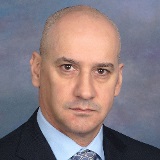
Michael Hadjisavas, PhD, Executive Advisor, GreyBird Ventures LLC

Michael Hadjisavas serves as the COO of Life Sciences and Healthcare at p-Chip Corporation with responsibilities for full operational leadership of advanced digital solutions for diagnostic, therapeutic and clinical operations. Michael has over 25 years’ experience in executive global leadership roles in multi-national publicly traded Life Science Tool and Diagnostics companies. His specialization and expertise is in leveraging a broad spectrum of molecular and genomics technologies to build businesses and strategic capabilities for discovery, translational research, and clinical development. Prior to p-Chip Corporation, he served as the Global Vice President of genomics at Qiagen. Additional prior roles include executive and leadership positions at Abcam/Danaher, Gen-Probe/Hologic, Life Technologies/Thermo and Millipore Sigma. His prior roles include General Management, Corporate Strategy & Development, M&A, New Business Incubation, Board Directorships, Portfolio Leadership, Professional Society Committees, Strategic Partnering and Venture Capital Investment. He currently holds board and advisory roles for Hummingbird Diagnostics GmbH, Association of Molecular Pathology, Piton Therapeutics, Ribbon Biolabs GmbH and GreyBird Ventures LLC. Michael holds BSc and PhD degrees in molecular and cellular immunology from the University of Adelaide.
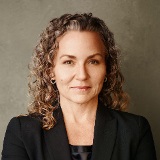
Megan P. Hall, PhD, Vice President, Medical Affairs, GRAIL

Megan P. Hall, PhD established and leads Medical and Corporate Affairs at GRAIL, Inc., where her team is responsible for educating health care providers on, and generating and disseminating evidence supporting, Galleri, a multi-cancer early detection test, as well as on the cancer care landscape. Previously, Megan was Director of Medical Communications at Jazz Pharmaceuticals, where she led healthcare provider-focused publication and education strategies for the company’s hematology/oncology and chronic pain portfolios. Before Jazz, Megan established a Medical Communication team at Natera to support the launch of the Panorama non-invasive prenatal test, and was an editor at the flagship open access journal, PLOS Biology. She also held research roles funded by the American Heart Association, California Institute of Regenerative Medicine, National Institutes of Health, and the Howard Hughes Research Foundation. Megan earned a BS in Biological Sciences (Biochemistry focus) from the University of California at Santa Barbara, and a PhD in Microbiology, Immunology, and Molecular Genetics from the University of California at Los Angeles.

Nicholas Halzack, MPH, Director, Health Policy, Roche Diagnostics

Nick is the Director of Health Policy at Roche Diagnostics Corporation. He believes that diagnostics are one of the most crucial elements to improving public health, and that broad access to new diagnostic technologies is based on a solid foundation of reimbursement and access policies. Prior to Roche, Nick worked on federal health policy at the American Society of Anesthesiologists and Nemours Children's Health System. He holds a M.P.H. in Health Policy from The George Washington University and a B.S. in Biological Sciences from Cornell University.

Sam Hanash, MD, PhD, Director, Red & Charline McCombs Institute; Evelyn & Sol Rubenstein Distinguished Chair, Cancer Prevention; Professor, Clinical Cancer Prevention-Research, Translational Molecular Pathology, University of Texas MD Anderson Cancer Center

Dr. Hanash was recruited to MD Anderson Cancer Center in 2011 to lead the Red and Charline McCombs Institute for Cancer Early Detection and Treatment. He was previously program head for Molecular Diagnosis at the Fred Hutchinson Cancer Research Center. Dr. Hanash’s interest and expertise are in the field of cancer diagnostics and the development of blood-based cancer biomarkers for risk assessment and cancer early detection. He is the inaugural president of the International Human Proteome Organization dedicated to the study of the human proteome, and a founder of the US Human Proteome Organization. Dr. Hanash’s approaches to meet the challenge of developing markers that signal the presence of cancer at an early stage to allow detection and effective treatment have included a rigorous painstaking in-depth quantitative profiling of the various types of molecules in the blood to find those that are released early either from the cancer cells or from the host response to the developing cancer. The work emphasizes the need for rigor in experimental design, in data collection and statistical analysis and in developing a mechanistic understanding of the relationship between the identified cancer markers and the developing cancer. This work has sparked innovation in experimental design and statistical analysis of biomarker data aimed at minimizing biases in discovery studies through prospective sample collections that relate most directly to the intended clinical application(s) and at reducing the false discovery rate through integration of data from multiple sources to increase confidence in the significance of the markers.

Chris M. Hartshorn, PhD, Chief, Digital & Mobile Technologies Section—CTSA Program, National Center for Advancing Translational Sciences (NCATS), National Institutes of Health (NIH)

I am the Chief of the Digital & Mobile Technologies Section and member of the scientific staff of the Division of Clinical Innovation within the National Institutes of Health's (NIH) National Center for Advancing Translational Sciences (NCATS). In this role, I manage and coordinate programmatic and research activities relevant to the section. My team focuses on bringing more interventions to more people, faster. Furthermore, to enable participants from more diverse backgrounds, those whom have been traditionally medically underserved, and from rural regions of the country to be able to participate in clinical trials. We tackle challenges in the remote delivery of care, building infrastructure for the decentralization of clinical trials, and working to implement solutions for providers and their community to engage and co-design remote patient monitoring. Our vision is to move the needle from bringing patients-to-care, to bringing care-to-patients. We implement this vision by way of the Clinical & Translational Science Award (CTSA) program - the single largest program of its kind within the U.S. DHHS that supports our Nation's clinical research ecosystem and its infrastructure. Prior to joining NCATS, I served as a program director in the Division of Cancer Treatment and Diagnosis at the NIH NCI. During my tenure at NIH, I have founded, guided and managed multiple programs. Prior to joining NIH, I was a member of the research staff at the NIST for projects focused on biomedical and national security applications, as well as subsequent collaborations with the U.S. Department of Defense, U.S. Department of Justice, NIH, Merck and Pfizer.

Elizabeth Heisler, Immunoassay Business Development Manager, Commercial, MilliporeSigma

Liz Heisler is a Business Development Manager at MilliporeSigma with extensive expertise in protein biology, immunoassays, and lateral flow assays. With a strong focus on matching innovative reagents and materials to customer needs, Liz excels in developing new business opportunities and optimizing raw material selection for enhanced assay performance. Passionate about advancing at-home and point-of-care diagnostics, she leverages her deep understanding of assay technologies to drive impactful solutions. Liz is committed to fostering collaboration and delivering exceptional results in the ever-evolving landscape of diagnostic testing.

Steffan Ho, MD, PhD, Vice President, Head of Translational Oncology, Pfizer

Steffan N. Ho is Vice President and Head of Translational Oncology in the Pfizer Oncology Division where he leads a team of highly engaged clinical translational scientists focused on collaborating with urgency to translate our understanding of cancer biology and advances in technology into new medicines for patients with cancer. As a board-certified pathologist and principal research investigator with over 25 years of clinical, academic, and industry experience, Dr. Ho provides leadership that brings together an understanding of clinical diagnostics, human cancer, tumor biology, immunology, precision medicine, technology platforms, and drug development. He has contributed to translational oncology efforts supporting the approval of a broad spectrum of small molecule and biologic medicines as well as a number of companion diagnostic tests benefiting patients with solid tumor and hematologic malignancies. Prior to Pfizer Dr. Ho was on the faculty at the University of California at San Diego in the School of Medicine before transitioning into drug development at Biogen Idec, where he led a discovery research team and established a clinical translational oncology group. Dr. Ho grew up in Minnesota where he received his undergraduate degree from Carleton College and his MD and PhD degrees from the Mayo Clinic. He went on to complete postgraduate medical training and postdoctoral research at the Stanford University School of Medicine.

Gillian Hooker, PhD, CSO, Concert

Gillian Hooker serves as the Chief Scientific Officer of Concert, a Nashville-based Health IT firm building an infrastructure to enable precision medicine. She also serves as an adjunct faculty member in the Vanderbilt University School of Medicine, leading the research arm of the Vanderbilt Masters in Genetic Counseling Training Program. She is the past-president of the National Society of Genetic Counselors.

Damon Hostin, Lead, Health System Market Access, Illumina, Inc.

Damon serves as Lead for Health Systems in Illumina’s Market Access department. Prior, Damon held multiple leadership positions at Catholic Health Initiatives (CHI), culminating in leading the Precision Medicine Alliance of CHI and Dignity Health (the Precision Medicine Alliance of CommonSpirit Health). Before CHI, he was clinical business leader for Complete Genomics. Earlier, he led the Life Science segment of Strategic Diagnostics’ (SDIX, now Origene) antibody and assay business, including IVD production, research tools and therapeutic candidate generation. Earlier, Hostin managed GenVis Labs, a clinical molecular diagnostic company purchased by Pfizer in 2005. As a part of the founding Team of Actinium Pharmaceuticals, he managed alliances in developing targeted oncology therapeutics. His start in genomics was as Team Leader, Sequencing at Celera Genomics, where he was published on the Human and Drosophila genomes in Science and contributed to pharmaceutical partnerships. His education includes undergraduate studies at Tulane University, Masters studies at Harvard, and certificate programs at Wharton and the NIH.

Eleanor A. Howe, PhD, Founder & CEO, Diamond Age Data Science

Eleanor has been working at the cutting edge of bioinformatics for over 15 years. As founder of Diamond Age, she led the company’s evolution from a small, project-based service provider to a full-fledged consultancy that works closely with clients to tackle their most difficult research challenges. Before founding Diamond Age, Eleanor served as the sole bioinformatician in the Center for the Development of Therapeutics at the Broad Institute of MIT and Harvard, where she helped drive drug discovery projects in cancer, cardiovascular disease, and kidney disease, among others. She also worked at the Dana-Farber Cancer Institute, where she led mid- and late-stage development of the Multiexperiment Viewer, a powerful tool for mining large genomic datasets. Trained as a computational biologist, Eleanor has deep expertise in transcriptional profiling as well as drug discovery and development. She earned her Ph.D. bioinformatics from Oxford University under Christopher Holmes and John Quackenbush, and also holds a master’s degree in cellular and molecular biology from the University of Wisconsin-Madison. Eleanor is on the board of directors for WEST and speaks frequently at conferences. You can read her published scientific work here.

Andres Hurtado-Lorenzo, PhD, Senior Vice President, Translational Research & IBD Ventures, Crohns & Colitis Foundation

Dr. Hurtado-Lorenzo is the Senior Vice President of Translational Research & IBD Ventures at the Crohn's and Colitis Foundation. He is responsible for planning and oversight the Foundation's translational research portfolio that advances solutions for patients based on research in the fields of Precision Medicine, Genetics, Microbiome, Fibrosis, Pain and Biosensors. He leads, the Foundation’s venture philanthropy program, IBD Ventures, that advances new products for IBD in biotech companies. He also conducts internal biomarker and drug discovery research efforts at the Foundation. He has proven success directing multidisciplinary drug discovery and development teams in the biotech and pharmaceutical industry (Wyeth, Pfizer, Proteostasis Therapeutics), resulting in clinical candidate drugs. He obtained his Ph.D. in Molecular Medicine & Gene Therapy from the University of Manchester in England, where he pioneered work in gene therapy for neurodegeneration. He completed his postdoctoral work at Harvard Medical School, Massachusetts General Hospital and Columbia University.
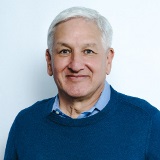
Bill Hyun, PhD, Venture Partner, Genoa Ventures

Bill is a Venture Partner with Genoa Ventures. With more than 25 years of life science and technology experience, Bill is a respected expert in both basic research and clinical lab technology development. At the University of California San Francisco, Bill directed one of the largest academic core facilities in the world with a strong concentration on cytometry and genomic technologies implementing a myriad of research, translational and clinical applications. His academic career included joint appointments at UC Berkeley and the Lawrence Berkeley National Lab, three honorary doctorates, and authorship of over 100 peer-reviewed publications. Bill has been directly involved in the conception, design, engineering, and validation of numerous commercially successful analytical instruments, consumable products, and software programs, often in collaboration with companies like Carl Zeiss, Danaher, Thermo-Fisher, Becton Dickinson, and Sony Corp. Bill's career is characterized by his ability to repeatedly identify opportunities for disruptive science and technology in transformative markets and to add value through the life cycle of a start-up. Bill has been a founder, investor, and/or advisor to more than 50 companies including Mission Bio, CellFe, Immusoft, Precision Biologics, Cytobank, True Materials, Juno Bio, Accuri Cytometers, Intabio, Applaud Medical, Vitra Bio, Biotrue, QDot Corp, Zephyrus, Akadeum, and Fluent Bio with the common goal of impacting healthcare worldwide. Bill has served as Venture Partner with two Bay Area venture groups focused on early-stage investment and is closely affiliated with four life tech incubators. Bill joined Genoa to invest in unique health tech opportunities where there is a synergy of sound science coupled with sophisticated technology. Bill believes it takes a special blend of science nerd, business acumen, and knowing the commercial need to jump into this space.

Luka Jelcic, Project Leader, DeciBio Consulting

Luka is a Project Leader at DeciBio Consulting, a precision medicine strategy consulting company, where he is building up the AI in R&D service vertical. Luka has deep experience in strategy consulting across the precision medicine ecosystem. Prior to DeciBio, Luka worked at L.E.K. Consulting in London and was a strategy advisor for CardiaTec Biosciences, an AI-first biotech spun out of Cambridge University. Luka holds degrees in Chemistry from UCL.

Heather Jorajuria, Senior Vice President, Clinical Trial & Scientific Operations, Foundation Medicine

Heather Jorajuria is the Senior Vice President of Clinical Trial and Scientific Operations at Foundation Medicine, Inc., leading a global team responsible for Regulatory Affairs, Clinical Operations, Data Management and Diagnostic Development. Her team is responsible for driving and delivering a global companion diagnostic and profiling strategy in support of both Academic and BioPharma Clinical Trials for the advancement of oncology precision medicine therapies. As the market leader in companion diagnostic development and Regulatory approvals with over 60% of Next Generation Sequencing (NGS) claims for Foundation Medicine assay products, Heather understands firsthand the importance of quality diagnostic testing and the impact it has on cancer research and oncology patients. Prior to Foundation Medicine, Heather spent the majority of her career in drug development at top Pharma and Biotech companies with a focus on clinical trials, quality risk management and pharmacovigilance. From her years spent in Pharma and drug development combined with her tenure at Foundation Medicine, Heather is passionate about modernizing clinical trials and transforming cancer care and is a champion of innovation who thinks differently about people, process, and technology as they relate to clinical research and precision medicine. Heather holds a Bachelor of Arts in Kinesiology from University of Colorado, Boulder and currently resides in Boston, MA.
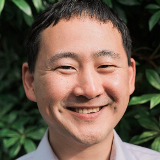
Kyle Farh, MD, PhD, Vice President & Distinguished Scientist, Artificial Intelligence Lab, Illumina

Biography: Kyle Farh, MD, PhD, is VP & Distinguished Scientist has been at Illumina since 2015 and leads the Artificial Intelligence lab at Illumina. The AI lab has been responsible to a large extent for the adoption of deep learning in clinical variant interpretation, including the pioneering SpliceAI and PrimateAI-3D algorithms, two widely used AI tools for clinical interpretation of human genetic variants. He holds a BS in computer science from Rice University, and MD/PhD degrees from Harvard Medical School and the Massachusetts Institute of Technology in molecular biology. He completed his internship and residency in pediatrics and clinical genetics at Boston Children’s Hospital and his postdoctoral fellowship with Mark Daly and Brad Bernstein at the Broad Institute.

Elaine Katrivanos, Vice President, Regulatory Affairs, Tempus

Elaine Katrivanos is Vice President, Regulatory Affairs at Tempus AI. In this role, she is responsible for leading the group developing and executing on regulatory strategies for the company. Prior to joining Tempus, Elaine was a global regulatory lead in pharmaceutical drug development at AstraZeneca. Before that, Elaine worked at CDRH/FDA for 12 years and served in a variety of key roles including premarket and post-market device review, policy development, and management. Elaine earned a degree in biomedical engineering from the University of Pittsburgh.

Joe Keenan, Head, Life Sciences, LetsGetChecked

Joe is an experienced diagnostic and pharmaceutical industry leader who is passionate about driving innovative strategies and enhancing product availability for patients all over the world. With a significant focus on access to testing in the US, Joe has amassed considerable expertise in diagnostic applications for safety, screening, efficacy and companion uses. Joe co-founded a diagnostic development company back in 2008, which was acquired in 2010 and subsequently joined Novartis pharma where he held a number of senior positions all focused on access to diagnostic testing. Joe now leads the life sciences division at LetsGetChecked where the focus is on home health management.

Larry Kessler, ScD, Professor, Health Systems and Population Health, University of Washington; Deputy Chair, MCED Consortium

Dr. Kessler is professor in the Department of Health Systems and Population Health, University of Washington, which he chaired from 2009 - 2015. He has over 40 years of experience in health services research, including positions at the National Institute of Mental Health, National Cancer Institute, and FDA. At NCI, he and his colleagues substantially changed the way in which cancer surveillance is performed, with the addition of the cancer supplements to the National Health Interview Survey, the SEER-Medicare data system, and the Breast Cancer Screening Consortium and the Breast Cancer Surveillance Consortium. His research record includes focused work in cancer, cancer surveillance research, and regulatory aspects of medical products. He came to UW from U.S. FDA Center for Devices and Radiological Health. His recent collaborative research focuses on patient-centered outcomes and comparative effectiveness research. He also serves as Deputy Chair of the MCED Consortium.
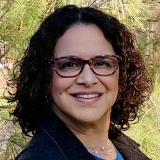
Shirin Khambata Ford, PhD, Former Vice President, Global Head, Companion Diagnostics, Daiichi Sankyo; Founder and Principal, Precision Medesign LLC

Shirin Khambata Ford, PhD, is currently Founder and Principal of Precision Medesign LLC, providing strategic consulting for personalized healthcare across Development and Medical Affairs by partnering with Diagnostics and Biopharma companies. Dr. Khambata Ford is a globally recognized expert in Oncology Precision Medicine and Companion Diagnostics, having led many key high impact activities that helped the efforts of many companies to improve lives of cancer patients over the past 22 years. Highlights include the discovery and establishment of the KRAS mutation biomarker for cetuximab in mCRC, the establishment of a brand-new biomarker, i.e., PD-L1 testing in 80 countries globally for pembrolizumab, and more recently having led a group that enabled the approval of the first Her2 Low IHC Companion Diagnostic for Trastuzumab deruxtecan (Enhertu) in breast cancer, and the first Her2 mutation tissue and liquid based Companion Diagnostics for Trastuzumab deruxtecan in NSCLC. At Daiichi Sankyo, Dr. Khambata Ford established and served as the Global Head for the Companion Diagnostics department responsible for the end-to-end strategic oversight for Companion Diagnostics development and associated regulatory approvals. Prior to this she was the Global Head of Biomarkers and Diagnostics in Oncology Global Medical Affairs at Merck and led a team that was responsible for leading activities to support biomarker testing for Keytruda and all oncology assets pre-, at and post-launch globally. Dr. Khambata Ford also previously served as Global Head Correlative Sciences, Oncology Global Development, Novartis. She led a group focused on clinical biomarker development and translational research for twenty late-stage development programs. Prior to this she was a Senior Biomarker Experimental Medicine Leader at Roche where she led biomarker work for early development oncology programs. She was previously Director of Oncology Biomarkers at Bristol-Myers Squibb where she led a group responsible for the discovery, validation, and implementation of clinical biomarkers for the late-stage portfolio. Her key accomplishments include being the lead researcher on the team that discovered that EGFR ligand expression and KRas mutation status are predictive of benefit from cetuximab in metastatic colorectal cancer. Her research has led to numerous publications in journals such as the New England Journal of Medicine, Journal of Clinical Oncology, British Journal of Cancer, JAMA, over 65 presentations at oncology conferences (e.g., American Society of Clinical Oncology, American Association for Cancer Research, European Society for Medical Oncology), and three patents.

Saad Khan, Scientist, Laboratory of Nikolai Slavov, Northeastern University

Saad Khan is a researcher in Professor Nikolai Slavov's group at Northeastern University, where he develops and applies single-cell proteomic methods to understand biological processes at the systems level. Previously, he worked at the Center for Quantitative Biology at the Peking-Tsinghua Center for Life Sciences, where he applied deep mutational scanning and developed large-scale, highly parallel assays to uncover mechanisms underlying bacterial antibiotic action and compensatory evolution in yeast.

Purvesh Khatri, PhD, Professor, Institute for Immunity, Transplantation and Infection, Center for Biomedical Informatics Research, Stanford University

Dr. Khatri is a Professor in the Institute for Immunity, Transplantation and Infection and Division of Biomedical Informatics Research in the Departments of Medicine and Biomedical Data Science at Stanford University. His research focuses on developing AI and machine learning methods for leveraging biological, clinical, and technical heterogeneity across independent publicly available heterogeneous data to accelerate clinical translation. His lab has applied these methods for identification of disease signatures that are diagnostic, prognostic, therapeutic and mechanistic across a broad spectrum of diseases including infections, autoimmune diseases, cancer, organ transplant, and vaccination. He is also a co-founder and Chief Scientist of Inflammatix, Inc., a company focused on translating host response-based diagnostics to clinical care.

Olivia Kim-McManus, MD, Associate Clinical Professor, Neurosciences, UCSD Rady Children's Institute for Genomic Medicine

Dr. Olivia Kim-McManus is a physician scientist and principal investigator at Rady Children's Institute for Genomic Medicine and UCSD Associate Professor of Neurosciences, with specialization in pediatric neurology, epilepsy, and clinical neurophysiology. She established and directs the Rady Precision Therapeutics Neuro-Interventional Program for Batten's Disease (CLN2) a rare neurodegenerative disorder in children, delivering targeted therapy by Ommaya reservoir. Her research focuses on the development and delivery of targeted precision therapeutics for rare genetic diseases in pediatric neurology including antisense oligonucleotide therapies (ASO) for SCN2A and other rare causal variants presenting with neurologic symptoms in infants and children. Her expertise includes regulatory experience as IND holder and PI for n=1 clinical trial delivery of personalized ASO for SCN2A and variant analysis for other developmental epileptic encephalopathies (DEE) to expand access of such genetic therapies from n=1 to n=more, in collaboration with partner organizations including n-Lorem Foundation, n=1 Collaborative, California Institute for Regenerative Medicine, and numerous family advocacy groups. She serves on numerous research and review committees and Boards including Child Neurology Society Research Committee, N1C Outcomes and Institutional Implementation WG, Epilepsy Foundation SD Professional Advisory Board, UCSD Altman Clinical and Translational Research Institute Scientific Review Board, Child Neurology Society and American Academy of Neurology Neurogenetics Special Interest Groups.
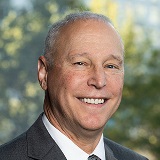
Ira Klein, MD, MBA, Vice President, Medical Affairs, Payer Relations, Tempus Labs, Inc.

Dr. Ira Klein is the Vice President of Medical Affairs for Payor Relations for Tempus, a data driven precision medicine and AI company, providing the world’s largest library of clinical and molecular data. In this role, he manages the intersection of revenue and claims payment with payor policies, works in contracting and program development with key business partners across the healthcare ecosystem, participating in the overall commercial markets strategic initiatives. Most recently, prior to this new position, he was the Chief Medical Officer of Health New England, leading plans efforts in medical management, contracting, network integrity, and quality and analytics. Previously, he was the leader and Senior Director of Healthcare Quality Strategy in the Strategic Customer Group of J&J Health Care Services for 5 years, building a new quality strategy capability for the Janssen brands. Prior to that at Aetna for 10 years, he was the National Medical Director for Clinical Thought Leadership, Chief of Staff to the CMO, and founded the Oncology Solutions team that created pathways and medical home value based arrangements. He also developed novel wellness and benefit design programs in the large employer segment of Aetna's National Accounts business. His early career included Assistant CMO of Bayshore Community Health Systems for 3 years, working in all aspects of inpatient and outpatient business, CMO of Elderplan for 2 years, serving the frail elderly in NYC and building a Part D formulary and benefit design prior to 2006 (as part of a Medicare Demonstration Project), and practicing Internal Medicine for 7 years at Robert Wood Johnson Medical School as Assistant Professor in Internal Medicine. Dr. Klein is an AOA graduate of Robert Wood Johnson Medical School, and completed residency training at Brown University and RWJMS/UMDNJ, as well as an MBA from Rutgers School of Business, and remains board certified in Internal Medicine. His Bachelor's Degree is from Rutgers College of Pharmacy, also with highest honors. He has a personal interest in health information technology and data security, previously certified in the medical HIT area.

Selin Kurnaz, PhD, Co-Founder and CEO, Massive Bio, Inc.

Selin Kurnaz is an accomplished entrepreneur and engineer, and the founder of Massive Bio. Her venture aims to provide global access to cancer clinical trials, overcoming geographical and financial barriers. Prior to this, she played a pivotal role in establishing EY's Private Equity Value Creation team, focusing on healthcare investments. With over a decade in management consulting, Selin combines strategy, operations, and transactions, emphasizing growth, profitability, and efficiency in the healthcare industry. Her commitment extends beyond Massive Bio; she aspires to innovate across industries, with interests in energy, transportation, and the nexus of mathematics and technology. Selin holds multiple engineering degrees from the University of Michigan and has a strong background in mathematics. Driven by hard work and perseverance, Selin's journey reflects her resolve to achieve her goals, marked by a unique blend of professional ambition and personal dedication.

Alex Latta, PhD, Field Application Consultant, Roche CustomBiotech

Alex received his Ph.D. in Chemistry from Indiana University-Purdue University Indianapolis. His research centered on the fields of enzyme kinetics, protein X-ray crystallography, and molecular biology. Alex joined Roche CustomBiotech in 2017 where he has primarily focused on performing experiments and supporting industrial customers in the applications laboratory in the field of molecular diagnostics reagents.

Lauren Leiman, Executive Director, BLOODPAC Consortium

Lauren C. Leiman is currently the Executive Director of the Blood Profiling Atlas in Cancer (BloodPAC), a consortium focused on creating an open database for liquid biopsies to accelerate the development of safe and effective blood profiling diagnostic technologies for patient benefit. Prior to running BloodPAC, she was the Senior Director of External Partnerships at White House Cancer Moonshot Task Force during the Obama Administration. Previously, Lauren was a Senior Advisor for the Melanoma Research Alliance and Director of Philanthropy at Elysium Management LLC in New York City. From 2008-2010, Lauren worked for the Millennium Promise Alliance, where she led the major gifts fundraising effort and spent significant time in sub-Saharan Africa. Lauren was also the head of marketing and investor relations at Steel Partners, LP, an activist hedge fund investing globally. Lauren received her undergraduate degree in communications from the University of Pennsylvania's Annenberg School. She also holds an MBA in international business from the University of North Carolina's Kenan-Flagler Business School and a master's degree in public relations and corporate communications from NYU.

Marc Levesque, PhD, Vice President, Immunology Discovery, Merck & Co.

Marc C. Levesque MD, PhD, Vice President, Immunology Discovery, and Merck Research Laboratories Cambridge Site Head received his MD degree from Yale University School of Medicine and completed his PhD in Immunology at Duke University, where he stayed on as faculty in the Department of Medicine and in the Duke Immunology Graduate School. He later moved to the University of Pittsburgh, where he continued translational research in autoimmune disease as Co-Director of the Rheumatoid Arthritis Center and as Director of the Lupus Center of Excellence. In 2014, Dr. Levesque moved to Abbvie and worked initially as a Medical Director in Translational Medicine. Following work in Translational Medicine, Dr. Levesque built a team that established Abbvie’s new Cambridge site in Early Immunology Discovery. In 2022, Dr. Levesque joined Merck as Vice President of Immunology Discovery and as the site head for Merck’s MRL Cambridge site. Outside of Merck, Dr. Levesque serves as the Industry co-chair for the public-private Accelerating Medicines Partnership Autoimmune and Immune-Mediated Diseases (AMP AIM) program.

Chi-Ming Li, PhD, Senior Principal Scientist, Therapeutic Discovery, Amgen

Dr. Chi-Ming Li trained as a geneticist and molecular biologist at MSSM and Columbia University, respectively, in New York, where he studied genetic lysosomal disorder and cancer biology. Since joining Amgen, Dr. Li has involved in diverse research projects mainly related to disease model characterization, GWAS variant validation, and target identification. Recently, by taking the advantage of the progress in molecular multi-omics, Dr. Li have implemented single-cell multi-omics capacity and capability and been utilizing such a useful platform for target or biomarker discovery as well as MoA or efficacy assessment inside the company. Dr. Chi-Ming Li is currently a Senior Principal Scientist, leading the Research Discovery Genomics group in Therapeutic Discovery organization for Amgen Research.

Yuhwa Lo, PhD, Professor, Electrical & Computer Engineering, University of California, San Diego

Yuhwa Lo received his PhD in Electrical and Computer Engineering from UC Berkeley. He is the William SC Chang Distinguished Professor of UCSD, and published over 500 peer reviewed articles in the fields of single cell technologies, biophotonics, lab-on-chip, microfluidics, and nanophotonics. He is a co-founder of NanoCellect Biomedical. He is a fellow of the IEEE and the Optical Society of America.
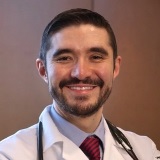
Arturo Loaiza-Bonilla, MD, Co-Founder & CMO, Massive Bio, Inc.

Dr. Arturo Loaiza-Bonilla, MD, MSEd, is the Co-Founder and Chief Medical Officer at Massive Bio, a global industry leader in connecting patients to clinical trials using artificial intelligence. An internationally renowned medical oncologist and researcher, Dr. Bonilla has a distinguished academic and clinical career in precision medicine oncology, immunotherapy, clinical trial design, digital health, entrepreneurship, and patient advocacy. Dr. Loaiza-Bonilla is board certified in both medical oncology and hematology and has extensive experience in the diagnosis and treatment of genomic biomarker-driven cancers and serves as enterprise Chief of Hematology and Medical Oncology at St. Luke's University Health Network. Dr. Loaiza-Bonilla earned a medical degree from the Universidad Nacional de Colombia in Bogotá, Colombia. Following medical school, he completed an internship and residency in internal medicine at Harbor Hospital Center, Johns Hopkins Hospital in Baltimore, Maryland. Dr. Loaiza-Bonilla also completed a fellowship in hematology and oncology from the University of Miami, Miller School of Medicine in Miami, Florida. He completed his master’s degree in medical education at the University of Pennsylvania, and pursued professional certification in Artificial Intelligence in healthcare at the MIT Sloan School of Management. Before joining Capital Health, Dr. Loaiza-Bonilla was vice chairman of the Department of Medical Oncology at Cancer Treatment Centers of America in Philadelphia, Pennsylvania, as well as enterprise director of research, where he provided leadership and expertise to their oncology trial portfolio across 5 cancer centers and over 70 NCTN and industry-sponsored clinical trials. His research has been extensively published in the most prominent journals and meetings in oncology, and he has been recipient of NIH funding to advance digital health and artificial intelligence tools for cancer research. He was also assistant professor of Clinical Medicine at the University of Pennsylvania School of Medicine; and he is currently assistant professor in the Department of Medicine at Drexel University College of Medicine, both in Philadelphia. Throughout his stellar career, Dr. Loaiza-Bonilla has held numerous leadership positions such as President of the Pennsylvania Society of Oncology and Hematology and President of the Board of Directors of the Global Alliance for Patient Access. In 2018, he was recognized as Philadelphia Business Journal’s Forty Under 40, in 2019 he was bestowed the Influencers of Healthcare Award – Outstanding Healthcare Provider award by the Philadelphia Inquirer, and in 2021 he was chosen as recipient of '40 under 40 in Cancer' accolade. He has also been selected in Castle Connolly's and Philadelphia Magazine's Top Doctors listing since 2018.

Hisani Madison, PhD, MPH, Vice President, Precision Medicine & Medical Device Development, PathAI

Hisani Madison currently serves as the Vice President of Precision Medicine and Medical Device Development at PathAI, where she oversees strategic initiatives focused on navigating research use algorithms into regulated diagnostics, including oversight of the Roche/PathAI collaboration to advance AI-enabled companion diagnostics. Previously, she was Executive Director and Global Head of Precision Medicine for the Immuno-Oncology Franchise at AstraZeneca, where she was instrumental in defining and executing precision medicine strategies for the Immuno-Oncology clinical development program including global diagnostic approvals. Prior to AstraZeneca Hisani was a Senior Reviewer at the U.S. Food & Drug Administration, where she played a key role in the approval of groundbreaking diagnostics, including the first NGS-based oncopanel with parallel review by CMS and the first direct-to-consumer BRCA test. She holds a PhD in Pathology from Duke University, an MPH from Johns Hopkins Bloomberg School of Public Health, and a BS in Biology from Hampton University.

Elizabeth M. Marlowe, PhD, D(ABMM), Executive Scientific Director, Head, R&D Infectious Diseases & Immunology, Quest Diagnostics

Dr. Beth Marlowe is the Executive Scientific Director and heads R&D for Quest Diagnostics Infectious Diseases and immunology. Dr Marlowe joined Quest in June of 2019. Beginning January of 2020, her team played a key role in the COVID-19 response and in 2022, the Mpox response. Previously she has worked as the Global Director of Medical Affairs for Microbiology at Roche Molecular Systems, provided laboratory leadership for over a decade within the Kaiser Permanente Regional Laboratories, and assay development for Gen-Probe (now Hologic). She is a diplomat of the American Board of Medical Microbiology, past-president for the SoCal branch of the American Society for Microbiology (ASM), served as an editor for the Clinical Microbiology Newsletter as well as the Journal of Clinical Virology. She has served as an elected member to the Council on Microbial Sciences for ASM, an appointed member of CLIAC, the federal advisory committee for CLIA to the United States HHS Secretary, and an elected member of the Board of Directors for ASM. Her research areas of interest are focused on the translation of new infectious disease diagnostics for use in evidence-based research for clinical and public health microbiology practice.

Jean-François Martini, PhD, MSc, Biomarker Clinical Assay and Technology Group Head, Translational Science Operations, Pfizer Oncology

Jean-Francois Martini has 20 years of biotech and pharma industry experience in pharmacology and clinical translational sciences and is author/coauthor of over 50 scientific publications. He is currently Executive Director, Translational Oncology Lead, Global Product Development-Oncology and has been at Pfizer, in La Jolla, California, since December 2011. He was previously Sr. Director, Translational Medicine, at Exelixis, So San Francisco, California, where he contributed to the approval of cobimetinib (preclinical in vivo pharmacology, partnered with Genentech) and cabozantinib (first approval in MTC) and to projects such as the alliance with Sanofi for the PI3K programs and out-licensing of esaxerenone (mineralocorticoid receptor blocker, approved in Japan for the treatment of hypertension) to Daiichi Sankyo. He completed his postdoctoral training at University of California, San Francisco, where he studied the antiangiogenic properties of fragments of Prolactin and Growth Hormone, after obtaining a PhD in Biochemistry and Molecular Biology from University of Paris XI, France. At Pfizer, he currently leads and/or supports the translational strategy for the next generation of CDK inhibitors; the Renal Cell Cancer franchise (sunitinib and axitinib); and lorlatinib (ALK/ROS1 inhibitors) in Lung Cancer. He also leads the cross functional efforts in the area of liquid biopsy/cfDNA (represents Pfizer as part of Blood Profiling Atlas-Cancer; Friends of Cancer Research).

Marielena Mata, PhD, Senior Director, Clinical Biomarkers, Vividion Therapeutics

Marielena Mata, PhD is Director and Diagnostic Lead at Pfizer, where she Leads the development and commercialization efforts of companion diagnostics for Oncology assets from early to late development. Prior to Pfizer, Dr. Mata was Head of Personalized Medicine and Companion Diagnostics at GSK where she was responsible for implementation of the Precision Medicine strategy across the GSK portfolio encompassing technical, development, regulatory, commercial, IP and business development efforts. Previously, at Janssen R&D, Inc. Dr. Mata was responsible for the design and implementation of biomarker strategies for Oncology assets, where she led the development of Circulating Tumor Cell based assays as companion diagnostics as well as the development of next generation circulating tumor cell isolation technologies based on microfluidics. Earlier, she established and managed the Biomarkers biobank. In addition to her work in Oncology drug development, Maty, as she is known, has a strong interest in women’s career development and mentorship and is the recipient of the AWIS-PHL Elizabeth Bingham Mentoring Award. Dr. Mata obtained a BA in Biology at the University of North Carolina at Greensboro and her PhD and postdoctoral training in Immunology at the University of Pennsylvania.

Amy McNeal, Director, Managed Care, Guardant Health

Amy is a seasoned professional with over 20 years of experience in the diagnostic laboratory industry. She currently serves as the Director of Managed Care at Guardant Health, a position she has held for the past six years. In this role, Amy has been instrumental in securing coverage and establishing contracts for the company’s proprietary tests. Before joining Guardant Health, Amy held a key leadership role at Biocept for four years, where she oversaw managed care and reimbursement strategies for their proprietary liquid biopsy tests, playing a critical role in their commercialization and market adoption. Amy started her career at prominent organizations such as LabCorp, Quest Diagnostics, and Clarient, where she developed extensive expertise in commercial strategy and held various leadership roles in the diagnostic industry.

Steve Miller, MD, PhD, CMO, Delve Bio

Dr. Miller is a board-certified clinical pathologist with expertise in microbiology and infectious disease diagnostics. He spent over 15 years as Director of the Microbiology Laboratory at UCSF, where he specialized in development and validation of molecular diagnostic testing for pathogen detection and characterization and pioneered the implementation of metagenomic next-generation sequencing (mNGS) in the clinical laboratory. He joined Delve Bio as Chief Medical Officer to develop mNGS clinical testing in a commercial reference laboratory setting, and aims to improve access to mNGS testing for diagnosis of infections and demonstrate how this novel technology can improve patient care.

Michael J. Mina, MD, PhD, CEO, Biohealth Engineering

Michael Mina, MD, PhD is an epidemiologist, immunologist and clinical pathologist. He is also an executive and consultant to governments, biotech, and life sciences companies. He was formerly a professor in the Departments of Epidemiology and Immunology & Infectious Diseases, at the Harvard T.H. Chan School of Public Health; in clinical pathology at Harvard Medical School and an associate faculty at the Broad Institute of MIT and Harvard. He was the associate medical director for molecular virology diagnostics at Brigham and Women's Hospital and started and helped lead the Broad Institute’s high throughput COVID-19 testing facility. His research focused on developing extremely multiplexed assays for immune profiling and mathematical models towards understanding effects of viral infections on immunity; the development and maintenance of immunity through life; and development of a global immunological observatory for pathogen spread. Dr. Mina became Chief Science Officer of eMed, a digital first healthcare company that improves effectiveness of home-based testing by linking home tests to telemedicine. In 2020, eMed collaborated with Abbott to bring the first low-cost COVID-19 rapid test - the BinaxNOW Home Test - into US Households enabling real-time result certification and public health reporting from anywhere helping millions of people travel internationally and return to work and school. Dr. Mina is also the Executive Director of the Immune Observatory, a 501(c)3 not-for-profit for pathogen monitoring and surveillance through next generation immunological tools. Dr. Mina advises US Federal and state governments, including both White Houses through COVID-19, US Congress, CDC, and FDA. He was the recipient of the NIH Director's Early Independence Award and was named by the Economist as a Global Progress Maker. He currently helps lead numerous large NIH funded programs including leading the implementation of the NIH Home Test to Treat Program and co-PI of the COVID-19 Paxlovid Rebound Cohort Study

Norman Moore, PhD, Volwiler Senior Associate Research Fellow, Director, Infectious Diseases, Scientific Affairs, Abbott Laboratories

Dr. Moore received his Bachelor's Degree from Dartmouth and his PhD in microbiology from the University of New Hampshire. He has eight US and 39 non US patents in the field of infectious disease diagnostics along with numerous publications and presentations. He has sat on medical committees such as the point-of-care groups for the College of American Pathology and the Clinical Laboratory Standards Institute and helps write guidelines/best practices for additional groups. At this time, he is the global director of scientific affairs for the Rapid Diagnostic division of Abbott Laboratories. He received the Volwiler Fellowship Award for lifetime achievement in science in 2019


Lesley Northrop, PhD, Former Executive, Everly Health

Lesley Northrop is the Chief Diagnostic Officer at Everly Health. She is a PhD-trained neuroendocrine biologist and a clinically-boarded molecular geneticist. She has spent the past 20 years working in clinical diagnostics, developing high-throughput, high-complexity diagnostic tests that meet clinical unmet need. Lesley's early training started in species survival of the giant panda and moved into developing genomic tests for humans affected with infertility, including early-detection of specific cancers through liquid biopsy detection. She has built and secured CLIA/CAP/NYS-licensure for several clinical dx labs as a licensed laboratory director and acts as a clinical translational scientist from ideation to commercial launch of diagnostic tests.

Justin Odegaard, MD, PhD, Vice President, Clinical Development, Guardant Health

Dr. Odegaard is currently the Vice President of Clinical Development and Product at Guardant Health, Inc., a diagnostics company focused on building tools to improve the care of cancer patients. He earned MD and PhD degrees from Stanford University, where he trained in surgical and molecular pathology. Prior to Guardant Health, he worked at Lifecode, Inc. as Director of Molecular Biology, OneOme Laboratories as Laboratory Director, Stanford University on the adjunct faculty, and at the University of California San Francisco as an Assistant Professional Researcher.

Jai Pandey, PhD, Head, Global Device Regulatory IVD/CDx and Digital Health, Sanofi

Jai Pandey currently serves as Director of Global Regulatory Strategy IVD at Bayer. Prior to joining Bayer, he worked as a Regulatory Lead at GSK for strategic and innovative precision medicine and digital health approaches. From 2017-2020, Jai was a lead IVD device reviewer at FDA/CDRH. Jai did his postdoctoral training at the Whitehead Institute of MIT. He holds a PhD in Cellular and Molecular Biology from University of South Carolina.

Omar Perez, PhD, Head of Medical Diagnostics, US Medical Affairs Oncology, AstraZeneca

Perez is the Head of Medical Diagnostics, US Medical Affairs Oncology at Astrazeneca. Dr. Perez has over 17 years designing, deploying and leading high-visibility oncology initiatives supporting global companion diagnostic developments, strategic partnerships and commercialization opportunities. Before joining Astrazeneca, he oversaw the global CDx developments for the GSK oncology portfolio, leading to diagnostic products for niraparib and dostarlimab. During his time at Pfizer, he led global CDx activities supporting the drug approvals of crizotinib, lorlatinib, dacomitinib talazoparib and inotuzomab. Notably, he led the first FDA approved NGS product for multiple targeted agents and helped establish the Center for Precision Medicine in LATAM to support Pfizer oncology products.Dr. Perez’s background includes roles in biotech and diagnostic companies, including co-founding Nodality, a diagnostic company focused on hematological malignancies. He is an inventor of the multiparametric phospho-proteomic flow technologies and an author of 37 publications and 35 patents. Dr. Perez received his doctorate in Molecular Pharmacology from Stanford University. He holds a B.A in both Molecular Biology and Philosophy and Chemistry degrees from the University of California, Berkeley. He received an executive education certificate in management and leadership at the MIT Sloan School of Management and has a Regulatory Affairs Certification.

Maliheh Poorfarhani, Product and Service Partnering Tech Lead - Digital Solutions, Roche Diagnostics

Mali Poorfarhani has been with Bayer Pharma for 16 years and currently is the director of global Digital Health sourcing. This role spans from technology scouting to data acquisition, building digital health supply chain and periodic performance evaluation in Bayer. Mali holds Masters of Science in System Engineering from University of Maryland, Leadership and negotiation certificate from Carnegie Mellon and AI in Healthcare certificate from MIT. Mali throughout her career at Bayer, design and implemented multi-disciplinary complex software and hardware system applications deployed in healthcare environment. Her current focus is to enable the Digital Health solution businesses across Bayer Pharma by scouting external partnerships.

Rachana Pradhan, PhD, Principal Scientist, gCS, Genentech

Rachana Pradhan is a postdoctoral fellow in Oncology Bioinformatics at Genentech where she investigates the role of fibroblasts and other stromal cell types in inflammatory & fibrotic diseases along with cancer indications. She specializes in implementing integrative data analyses to infer biological meaning from single-cell multimodal assays. Her recent work includes the construction of mouse and human fibroblast atlases, spanning multiple tissues and disease indications available at https://www.fibroxplorer.com/. Prior to Genentech, Rachana obtained her PhD at the Swiss Federal Institute of Technology, Lausanne (EPFL) in Bioengineering with a focus on functional genomics.

David Pulliam, Director, Government Affairs, Gilead Sciences

David Pulliam has worked for over a decade with Gilead Sciences, a California-based biopharmaceutical company, currently serving as Director, Federal Government Affairs. In this role, David represents Gilead before Congress, executive branch agencies, community organizations, and trade associations. He previously worked on Capitol Hill as a Health Policy Advisor for Congressman Phil Gingrey (R-GA), and prior served in multiple capacities for then-Representative Bill Cassidy (R-LA). He holds an M.B.A. and a B.A. in Economics from the University of North Carolina- Chapel Hill.

Bruce Quinn, MD, PhD, Principal, Bruce Quinn Associates, LLC

Bruce Quinn, MD, PhD, is a professional strategy consultant helping innovative companies achieve their goals under U.S. federal health policies. His consulting practice, with offices in Los Angeles and San Francisco, works with leading genomic, medical technology, and biopharma companies. Originally trained as a neuropathologist, earlier in his career he held tenure-track faculty positions at NYU Medical School and the Northwestern University School of Medicine. As a physician executive, he has held positions with Accenture’s healthcare strategies practice, the Medicare program, and with health policy groups in two law and lobbying firms. Recent publications have included articles on defining clinical utility for diagnostic tests and a review of the emerging digital genomics industry. In addition, his blog, www.DiscoveriesInHealthPolicy.com, covers innovative health care policy developments and receives over 100,000 hits per year. The website for Dr. Quinn’s firm is www.brucequinn.com.

Lakshman Ramamurthy, PhD, Vice President, Regulatory Affairs, GRAIL

As VP, Regulatory Affairs at GRAIL, I help bring to market the inventions, ingenuity and innovations of our scientists, clinicians and engineers to detect cancer early. My previous roles include leading Precision Medicine Regulatory at GSK, and Global Regulatory Lead at Foundation Medicine. From 2007-13 at the US FDA CDRH, I led the FDA- CMS Parallel Review pilot project, served as Policy Advisor to the Office of Center Director CDRH and as Legislative Analyst in the Office of Commissioner on issues pertaining to Device Law, FDASIA and User Fees. Following FDA, I was appointed to CMS Medicare Evidence Development and Coverage Advisory Committee (MEDCAC). I have consulted for device/Dx clients on regulatory and payor strategy, value and evidence at Avalere Health and through my company DxDevice Strategies LLC. I have over two decades in genomics/bioinformatics, diagnostics and regulatory and have worked in academia, biotech, government, consulting and in big pharma. I have a PhD in Molecular Biology from UNC-Chapel Hill, with post-doctoral training at St. Jude Children's Research Hospital.

Jack Reifert, PhD, Senior Director, Development, Serimmune

My career has been driven by an underlying desire to translate scientific research into products and applications that improve human health and by extension happiness and well-being. An MS in pharmaceutical chemistry from UCSD, a PhD in neuroscience from UCSB, followed by postdoctoral research in chemical engineering shaped my academic research and solidified my desire to apply my skills towards early and less arduous detection of diseases, in turn enabling early and more successful interventions. My work at Serimmune developing and applying our core assay, SERA, to identify antibody binding epitopes in massively multiplex format is an extension of my academic experiences and passion for translational research. Leading collaborative projects utilizing SERA for multiplex infectious disease detection and the development of improved vaccines has been particularly fulfilling. These efforts will hopefully translate into improved detection and prevention of infections and useful insights into the role of infections in chronic disease.

Jenny Rooke, PhD, Managing Director, Genoa Ventures

Genoa Ventures’ founder and managing director Jenny Rooke deploys capital at the frontiers of life sciences innovation, with a focus on technology-fueled solutions and category-defying opportunities. Her background includes a PhD in genetics from Yale, management consulting experience to pharma and biotech leaders at McKinsey, and operating experience in a genomics start-up. Jenny got her start in venture at Fidelity Biosciences (now F-Prime Capital), and then brought her toolkit of genetics expertise, business strategy, and venture investing to the Gates Foundation, where she managed over $250M in funding in genetic engineering, diagnostics, and synthetic biology. Jenny founded San Francisco-based Genoa Ventures to be the investing partner of choice for early-stage companies innovating at the convergence of biology and technology.
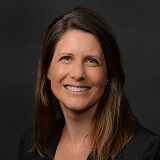
Sandra Waugh Ruggles, PhD, Director, Policy Research, Stanford Byers Center for Biodesign; President, Summit Rock Strategy

Sandra Waugh Ruggles, PhD serves as Director for Policy Research in the Stanford Byers Center for Biodesign Policy Program. She studies policy issues at the intersection of healthcare and innovation. She is also the President of Summit Rock Strategy Consulting where she specializes in leading medtech development teams through early-stage strategic innovation decisions. She holds a PhD from the University of California, San Francisco and was a Stanford Biodesign Innovation Fellow.
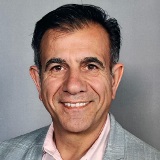
Hakan Sakul, PhD, Owner and President, Precision Dx Strategies, Inc.

As former VP and Head of Diagnostics, Dr. Hakan Sakul founded and led Pfizer’s Diagnostics group, with dozens of drug/diagnostics combination approvals in global markets under his leadership. During his 24-year tenure at Pfizer, Hakan also held leadership positions in Clinical Pharmacogenomics, Molecular Profiling, and Translational Oncology. One of his most significant professional accomplishments was to lead Pfizer’s flagship CDx program for Xalkori®, resulting in simultaneous FDA approvals of the drug/diagnostic combination in 2011. Prior to Pfizer, Hakan worked in the biotech industry in human genetics and statistical genetics. Hakan’s contributions to precision medicine and diagnostics have been widely recognized through both internal and external awards and frequent speaking engagements. He is a former member of the Board of The Personalized Medicine Coalition, served as a Scientific Advisory to Luminex Corp, and currently is a Board member of Progentec Diagnostics, as well as BASH Biotech. Hakan is a member of California Gov Newsom’s Precision Medicine Advisory Council. He received his BS and MSc degrees from Ankara University in Turkey, PhD in Quantitative Genetics from the University of Minnesota as a Rotary Foundation Scholar and conducted postdoctoral studies at the University of California-Davis. He has authored over 30 refereed scientific articles as well as many other publications. Hakan is keenly interested in molecular diagnostics, liquid biopsy and related medical technologies to advance Precision Medicine for the improvement of individualized healthcare.
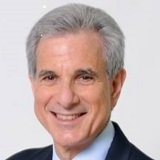
Howard I. Scher, MD, Head of Biomarker Development Program, Member and Attending Physician, Department of Medicine, Memorial Sloan Kettering Cancer Center

Howard I. Scher, MD, FASCO is Head of the Biomarker Development Program and Member and Attending Physician at Memorial Sloan Kettering Cancer Center (MSK); Professor of Medicine at Weill Cornell Medical College; and D. Wayne Calloway Chair in Urologic Oncology. His research focuses on the codevelopment of targeted therapies and biomarkers to guide treatment selection, improve drug evaluation, and accelerate regulatory approvals. Dr. Scher led PCWG2 and PCWG3, international efforts to standardize the design and analysis of prostate cancer trials. Translating insights into molecular and genetic prostate cancer features to the clinic, he led the development of FDA-approved Zytiga and Xtandi. Dr. Scher serves as PI of the NIH SPORE in Prostate Cancer at MSK and the Department of Defense-sponsored Prostate Cancer Clinical Trials Consortium (PCCTC), and received an AACR Team Science Award for his multidisciplinary work developing AR inhibitors. Dr. Scher was elected to the Association of American Physicians.

Paul Sheives, MS, JD, Vice President, Government Affairs, Myriad Genetics

Mr. Sheives is the Vice President of Government Affairs with Myriad Genetics, and is based out of their Government Affairs office in Washington, DC. In this role, Mr. Sheives leads the Company’s Federal and State Government Affairs activities to ensure access to the company’s advanced diagnostic services. He is a leader in public policy development in the clinical laboratory space and has a deep understanding of legislative strategy and health care reimbursement policies. With a background in molecular biology, regulatory law, and reimbursement counseling, Mr. Sheives has represented companies throughout the spectrum of biotechnology. Prior to joining Myriad Genetics, Mr. Sheives served as Vice President, Government Affairs at DELFI Diagnostics, Sr. Director, Reimbursement & Health Policy at Roche Diagnostics, Vice President, Reimbursement & Regulatory Affairs at the American Clinical Laboratory Association, and was Director for Personalized Medicine & Diagnostic Policy at the Biotechnology Industry Organization (BIO). Before BIO, Mr. Sheives practiced in two large, international law firms as a legal associate and regulatory science advisor in the areas of FDA and reimbursement law. He holds a J.D. from the Georgetown University Law Center, a M.S. in Molecular and Cellular Biology from the University of Texas Southwestern Medical Center at Dallas, and a B.S. in Microbiology from the University of Texas at Arlington.


Aaron Sin, Senior Director Research & Technology Development, Diagnostics & Regulated Materials, MilliporeSigma

Aaron leads a global R&D team focused on delivering fit-for-use solutions for manufacturing customers at MilliporeSigma, in the Diagnostics and Regulated Materials business. In the past 20 years, he has served different roles in business development, product management and now R&D; with majority of those years in MilliporeSigma. Prior to joining the life science industry, Aaron completed his post-doctoral fellowship at Harvard Medical School. He holds a PhD from Cornell University and a Bachelor's from University of Delaware, both in Chemical Engineering.

Ajit Singh, PhD, Partner, Artiman Ventures

Ajit is Managing Director at Silicon Valley based Artiman Ventures. He is also an Adjunct Professor in the School of Medicine at Stanford and serves on the Board of Trustees of American Association for Cancer Research (AACR) Foundation. Additionally, he is on the Board of Directors of Onconetix, Leo Cancer Care, Artidis, and Sofie Biosciences. In the past, he has served as the global CEO of Siemens Oncology. Subsequently, he was the CEO of BioImagene, a cancer diagnostics startup, acquired by Roche. He also served as Senior Advisor to the Tata Trusts Cancer program. Ajit has a Ph.D. in Computer Science from Columbia, a Master’s in Computer Engineering from Syracuse and a bachelor’s in Electrical Engineering from Banaras Hindu University. He has published 2 books and 5 patents. His Top-10 Book Review is carried by various blogs and journals in December every year.

Robert A. Smith, PhD, Senior Vice President & Director, Center for Cancer Screening, American Cancer Society

Robert A. Smith, PhD is a cancer epidemiologist and Senior Vice President, Cancer Screening, at the American Cancer Society (ACS). He also is Director, American Cancer Society Center for Early Cancer Detection Science (CECDS) and Adjunct Professor of Epidemiology at the Rollins School of Public Health, Emory University School of Medicine, and Honorary Professor, the Wolfson Institute of Preventive Medicine, Barts & The London School of Medicine & Dentistry, Queen Mary University of London. He received his PhD at the State University of New York at Stony Brook in 1984 and has held positions at the Boston University School of Public Health, the Centers for Disease Control, and the American Cancer Society. At the ACS he leads the development of ACS cancer screening guidelines, various research and policy initiatives in the Center focused on early cancer detection, including R&D initiatives focused on new screening technology including multi-cancer early detection tests.

Meghan Spell, JD, MBA, Director, Growth and Strategy, Optum Genomics

Meghan is on the Growth and Strategy team of Optum Genomics, a UnitedHealth Group corporate strategy tram. She works with clients and internal stakeholders to identify opportunities to use precision medicine products within the healthcare ecosystem. Prior to joining the Genomics team, she spent time developing strategic products for other UnitedHealth Group businesses. She began her career as a healthcare attorney, focused on healthcare regulatory and medical malpractice defense. She gained experience working within clinical practices and observed the challenges patients and providers face when she switched from the corporate practice of law to lead the compliance department of federally qualified health centers before joining UnitedHealth Group. She also gained experience leveraging public private partnerships during her time at the Bill and Melinda Gates Foundation. Meghan earned an MBA from Duke University and a JD/DCL and a BS degree from Louisiana State University.

Sudhir Srivastava, PhD, Chief, Cancer Biomarkers Research Group, NIH NCI

Dr. Srivastava is Senior Scientific Officer and Chief of the Cancer Biomarkers Research Group in the Division of Cancer Prevention, National Cancer Institute. He joined the National Cancer Institute in 1988. Since 1990, he has served as program director in the Division of Cancer Prevention and focused his responsibility in developing molecular approaches to cancer early detection, screening and prevention. He has conceptualized and implemented several programs to study the biology and early detection of precancer lesions, with a primary emphasis on translational research on cancer screening, early detection, risk assessment and enabling technologies including artificial intelligence (.https://prevention.cancer.gov/research-groups/cancer-biomarkers/about-cancer-biomarkers) Dr. Srivastava is an internationally recognized leader in cancer biomarker research. He is best known for his seminal contributions to improving systems approach to biomarker discovery, development and validation. In 2000, Dr. Srivastava developed and implemented a novel approach to collaborative clinical research on cancer biomarkers through the establishment of the Early Detection Research Network (EDRN; www.cancer.gov/edrn ), a flagship program at the National Cancer Institute, National Institutes of Health. Under his leadership the network has begun translating biomarkers into clinical tests (> 8 FDA approved and > 13 CLIA certified) for early detection and diagnosis, risk assessment, and prognosis. He has spearheaded the role of chemical sciences in oncology by establishing the NCI’s Alliance of Glycobiologists (www.glycomics.cancer.gov) v to study the structure-function relationship of glycans, AI for improving prediction, noninvasive technologies, such as liquid biopsy to multi-analyte, multi-cancer screening, and biomarkers in cancer detection and diagnosis of rare cancers, such as pancreas, liver and ovary. He has played a key role in conceptualizing and implementing informatics infrastructure for the EDRN in collaboration with NASA (Jet Propulsion Laboratory), a model collaboration being followed elsewhere in NIH. Dr. Srivastava is best known for his work on developing medical guidelines on the diagnosis of Hereditary Non-polyposis Colorectal Cancer (HNPCC). He played a pivotal role in the development of the Bethesda Guidelines for diagnosing HNPCC, which is in clinical practice world-wide. He has received several honors and awards and is a member of a number of scientific committees world-wide. In 1995, he was elected to the American Joint Committee on Cancer (AJCC) which is responsible for developing staging criteria for cancers for worldwide use and currently serves on the AJCC Executive Committee. He has been a visiting Professor at several medical and academic institutions and has delivered several inaugural and keynote addresses. In 2017, he was appointed as an inaugural head of the Human Proteome Organization’s External Development Initiatives (HEDI; www.hupo.org ). He has delivered lectures as a Keynote Speaker in more than 150 professional meeting and was invited in 2013 by the US Congress to speak on the early detection research programs at NCI. Currently, he is serving on the Planning Committee of the National Academies of Science to host a workshop on screening and early detection in 2020. He is founding Editor-in Chief of the journal Cancer Biomarkers) https://www.iospress.nl/journal/cancer-biomarkers) published by the IOS press and serves as Associate Editors and reviewers for several internally know journals. He has published more than 200 research papers, review articles and commentaries in peer reviewed journals. He has edited several monographs and five book: Early Detection of Cancer: Molecular Markers, published by the Futura Publishing Company in 1995 and Molecular Pathology of Cancer, published by IOS Press, Amsterdam in 1999; Informatics in Proteomics (2005) published by Francis and Taylor, New York; Translational Pathology of Early Cancer (2012), published by the IOS Press and Biomarkers in Cancer Screening and Early Detection, published by Wiley, New York, 2017. Dr. Srivastava has received numerous NCI and NIH awards for his leadership in biomarker research and received a Team Science Award for Informatics by the Jet Propulsion Laboratory, NASA for his visionary and innovative use of NASA Data System Technologies in biomedical science. In 2016, he received a Cancer Prevention Distinguished Alumni Award for his accomplishments and mentoring of fellows. Recently, he was awarded Distinguished Public Service Award (2016) by the American Pancreatology Association and a Distinguished Clinical and Translational Proteomics Award (2017) by HUPO International the Distinguished Alumni Award (2016), Cancer Prevention Fellowship Program, NCI . He was featured in Wired magazine in August 2003 for his leadership in cancer diagnostics. He has been planning and managing comprehensive extramural scientific programs for more than 26 years. In 2016, he was invited to brief the US Congress on progress made on biomarkers for cancer early detection. He has successfully managed several mission-critical goals of the National Cancer Institute at various fronts including conceptual, infrastructure, dependency linkage, and coordination among various federal, academic and private sector constituents. He has successfully developed partnerships with National Institute of Standards and Technology, DOD’s Center for Prostate Disease Research, DOE’s Pacific Northwest National Laboratory and Jet Propulsion Laboratory on shared interests. In addition, he has developed collaborations with international and non-profit foundations, such as Japan’s Agency for Medical Development and research, CR-UK, Chinese National Cancer Institute, PanCAN, Lustgarten and Kenner’s Family Research Foundation.

Andrea L. Stevens, PhD, Senior Director, Precision Medicine Access, J&J Innovative Medicine

Andrea is passionate about Precision Medicine and the role that quality testing plays in providing patients access to life changing medicines. She joined Janssen in March 2020, following 7 years in market access consulting, culminating in her appointment as Director of Value and Access at WG Group. Andrea was previously a member of the Scientific Affairs team at Quest Diagnostics Clinical Trials focused on genetic testing. Andrea holds a PhD in Transplantation Immunobiology from University College London and studied at the Anthony Nolan Research Institute.

Mark Stewart, PhD, Vice President, Science Policy, Friends of Cancer Research

Mark Stewart is vice president of science policy at Friends of Cancer Research (Friends). Friends is an advocacy organization based in Washington, DC that drives collaboration and has been instrumental in the creation and implementation of policies ensuring patients receive the best treatments in the fastest and safest way possible. Mark leads the development and implementation of the organization’s research and policy agenda as well as conducts research to inform ongoing policy discussions. Mark establishes unique partnerships to help develop innovative, evidence-based policy proposals and consensus-driven solutions to address challenges and accelerate cancer drug development. He regularly participates in policy discussions and meetings throughout the year to help catalyze meaningful change for oncology healthcare. His research and policy interests focus on medical product development, clinical trial designs and data generation, and patient focused drug development.
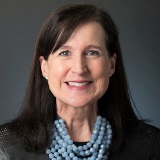
Angela Stewart, Vice President, Global Government Affairs, Cepheid

Angela Stewart has been with Cepheid since 2018, currently serving as Vice President, Global Government Affairs. Her primary responsibility is to lead Cepheid’s U.S. and global policy and advocacy work through lobbying, coalition building and working with trade and professional associations. Prior to joining Cepheid, Angela held similar roles at West Health, Merck & Company, Inc. and Schering-Plough Corporation. Angela also spent seven years on the staff of former U.S. Senator John Warner (R-VA), covering health care issues. A Virginia native, Angela is a graduate of the University of Virginia and William & Mary Law School. Angela was a litigation associate at Jenner & Block in Chicago and McGuireWoods in Washington, D.C. and a law clerk for The Honorable James C. Turk, United States District Judge, Western District of Virginia.

Amy Summy, Executive Vice President and Chief Marketing Officer, Labcorp

Amy serves as EVP, Chief Marketing Officer and Consumer Business Lead at Labcorp. As a member off Labcorp’s Executive Committee, she is responsible for global marketing including brand and reputation, digital experiences and ecommerce, commercialization, product management, insights, and communications. Amy also leads the company’s Consumer businesses under the brands Labcorp OnDemand and Ovia Health which offer health and wellness solutions to consumers, including at-home testing, mobile apps focused on women's health and pregnancy, health coaching and access to Labcorp's array of testing. She is a member of Labcorp’s ESG and Venture Fund Steering Committees and serves as the Executive Sponsor for EnABLE (resource group for people with disabilities). Prior to Labcorp, Amy held executive leadership positions in marketing, sales and consulting at Ernst & Young, TE Connectivity, and digital consultancy Sapient. Amy is a Board Observer of venture-backed NowDX, and is a Board Director of the nonprofit No More Kids with Cancer. She also serves as a member of the Corporate Council of the Children’s Hospital of Philadelphia. Amy has received wide recognition for her leadership, including being named to the Forbes CMO Next list and being awarded the Customer Obsession award by Forrester Research. She holds a B.B.A. in Finance from Kent State University and an MBA in Finance and International Business from the Stern School of Business at New York University.
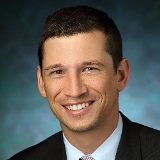
Joel C. Sunshine, MD, PhD, Assistant Professor, Dermatology, Pathology and Biomedical Engineering, Johns Hopkins School of Medicine

Joel Sunshine, MD PhD, is an Assistant Professor of Dermatology, Dermatopathology, and Biomedical Engineering at the Johns Hopkins School of Medicine. He completed his MD PhD in Biomedical Engineering at the Johns Hopkins School of Medicine, and then went on to Dermatology residency and Dermatopathology fellowship at Northwestern Feinberg School of Medicine. His research efforts focus on engineering new approaches to better understand and perturb the immunologic responses to skin cancers. To better understand the immune response to skin cancer, Dr. Sunshine and colleagues are using multiplex immunofluorescence (mIF), digital pathology, and artificial intelligence to develop improved biomarkers of treatment response and resistance, with a focus on examining the role of antigen presentation in the tumor immune microenvironment (TIME). Dr. Sunshine was recently awarded a Dermatology Foundation Career Development Award to advance this work.
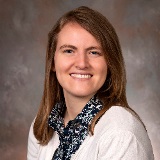
Sarah Thibault-Sennett, PhD, Senior Director, Reimbursement Policy, American Clinical Lab Association

Sarah Thibault-Sennett joined ACLA in April 2023 as Senior Director of Reimbursement Policy. Sarah was previously the Director of Public Policy & Advocacy at the Association for Molecular Pathology (AMP). Her areas of expertise focus on coding, coverage, and reimbursement issues affecting molecular diagnostic tests. Additionally, she has a strong background in patient engagement and regulatory issues affecting molecular pathology. She has a PhD in Molecular and Cell Biology from the Uniformed Services University of the Health Sciences (USU) in Bethesda, MD, and a background in molecular genetics and developmental biology. She moved into public policy with the goal of increasing patient access to appropriate diagnostic testing.

Susan Tousi, CEO, DELFI Diagnostics

Susan has extensive R&D and business leadership experience across the life sciences and technology industries. Adept at shaping and leading global R&D, commercial, sales and operational strategies, she most recently held over a decade-long SVP tenure at Illumina, Inc. where she served as Chief Commercial Officer for three years until joining DELFI in January 2024. Susan spearheaded the engineering and launch of several of Illumina’s most impactful and well-recognized products and is adept at driving value and commercial success for organizations. Earlier at Illumina, she led the product development organization as Chief Product Officer and drove the acquisitions of three companies to scale up Illumina’s software solutions. She also brings experience from leadership roles at Eastman Kodak’s Consumer Inkjet Systems as Corporate Vice President and General Manager, Phogenix Imaging LLC, and Hewlett-Packard. Susan is a 2022 Forbes ‘50 over 50 Entrepreneurs’ honoree and was named one of the 50 Top Diverse Leaders for 2020 by the California Diversity Council. She is a member of the National Academy of Engineers and the International Women’s Forum, a global organization of preeminent women of significant and diverse achievement. Susan serves as an independent board director of BICO Group, a public company in Sweden, and as a scientific advisor to Vizgen, a private company driving innovation in the field of spatial transcriptomics. Susan holds an MBA degree from UCLA and an Honors BS in Engineering Science from Pennsylvania State University.

Nam K. Tran, PhD, Professor, Pathology and Laboratory Medicine, University of California, Davis

Dr. Tran is a board-certified High Complexity Laboratory Director specializing in clinical chemistry and point-of-care testing. He holds the prominent position as Professor and Senior Director of Clinical Pathology at the UC Davis Health and Director of both the Pathology Biorepository and the new UC Davis Center for Diagnostic Innovation which he helped establish. In 2023, he also serves as Chair for the AACC Northern California Section, and Chair-Elect for the AACC Critical and Point-of-Care Testing Division. His research interest lies in acute care settings, particularly in the field of point-of-care testing, clinical chemistry, and molecular diagnostics. More recently, he has been at the forefront of incorporating artificial intelligence and machine learning into point-of-care testing—playing a significant role in the development of an automated ML software which has resulted in a UC Davis equity-owned start-up company. During the challenging period of the COVID-19 pandemic, he led the SARS-CoV-2 testing efforts at UC Davis Health where he played a role in deploying several POC emergency use-authorized COVID-19 tests, but also invented one of the first machine learning-enhanced mass spectrometry methods for identifying patients with COVID-19, showcasing his expertise in the field of in vitro diagnostic innovation.

Wenjing Wang, Associate Director, Global Regulatory Affairs & Clinical Safety, Merck & Co., Inc.

Wenjing Wang holds master's degrees in both Biochemistry and Regulatory Affairs, along with a bachelor’s degree in Biotechnology. They bring over seven years of biomedical research experience and over ten years of working in regulatory affairs. Wenjing has a comprehensive understanding of global regulations, ranging from the FDA, Health Canada, EMA, JMHW, CFDA, to other international agencies for medical devices, including digital health, combination products, and drugs.

Ilan Wapinski, PhD, Head, Biomarkers & Patient Stratification, Precision Medicine & Computational Biology Group, Sanofi

Ilan is currently the head the Biomarkers and Patient Stratification team at Sanofi’s Target, Disease and Systems Biology (TDSB) organization. He is an experienced leader at developing novel AI-powered applications to derive new insights in disease biology and biomarker discovery. Ilan received his PhD from Harvard, focusing on developing novel computational methods to analyze genomics data sets while working at the Broad Institute. His work led to novel insights into how genomes and gene regulatory programs evolve across organisms and environmental conditions. After completing his PhD, he was a Fellow in the Department of Systems Biology at Harvard Medical School, where he developed high throughput experimentation and automation approaches. Ilan joined PathAI in 2017, establishing the scientific team that developed novel approaches to analyzing quantitative pathology data, including uncovering novel disease biomarkers, improving clinical trial endpoints, and developing novel diagnostics. At PathAI he managed diverse teams of translational researchers, data scientists, pathologists, product managers, as well as scientific project and communications managers. Ilan’s teams were responsible for all scientific engagements with business partners. Ilan moved to Sanofi in 2023, where he has been leading a group of innovative disease knowledge experts and data scientists. At Sanofi, Ilan’s team is responsible for using AI and advanced analytical approaches to develop a deeper understanding of disease biology and characterizing patient heterogeneity. Their work serves to better inform novel target discovery and precision medicine strategies across therapeutic areas and the drug development value chain.

Avantika Waring, MD, CMO, 9amHealth

Dr. Avantika Waring, MD has over fifteen years of experience in the medical field. As the Chief Medical Officer at 9amHealth and Endocrinologist, she is on a mission to treat obesity and associated cardiometabolic conditions with affordable solutions, focusing on the historically underserved. With experience in both traditional healthcare, academic practice, and start-up spaces, she brings your audience a unique perspective on forming a culturally inclusive approach to patient care: from diagnosis to treatment and beyond.

Julie Wiedower, Senior Director, Medical Affairs, Managed Care, Guardant Health

Julie is a certified genetic counselor and has over 11 years of experience in genetics services in a laboratory, hospital, and health plan vendor setting. She has specialized in utilization management to increase access to appropriate genetic testing across health care, achieving a savings of $500,000 from modification or cancellation of inappropriate genetic testing at one pediatric center. She has reviewed prior authorizations, crafted genomics coverage policies, and is currently the Senior Director of Medical Affairs for Managed Care for a cancer diagnostics lab specializing in liquid biopsy. Julie is pursuing her PhD in Healthcare Genetics with a focus on the attributes of the "Value of Genomic Testing." Her passion lies in speaking enthusiastically and effectively to multiple stakeholders while advocating for increased access to quality genetics care and forming partnerships between providers, institutions, health plans, and laboratories.
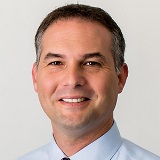
Michael Wilson, MD, Professor, Neurology, University of California, San Francisco

Michael Wilson is a Professor of Neurology at University of California, San Francisco’s Weill Institute for Neurosciences in the Department of Neurology’s Division of Neuroimmunology and Glial Biology. He is the founding director of the UCSF Center for Encephalitis and Meningitis. His lab does translational research on neuroinflammatory disorders with the aim of developing improved diagnostics and therapeutics.

Stephen T. C. Wong, PhD, Chair & Professor, Houston Methodist Hospital and Weill Cornell Medical College

Stephen T.C. Wong, Ph.D., P.E., FIEEE, FAIMBE, FIAMBE, FACMI, FAMIA, FAAIA, is the John S. Dunn Sr. Presidential Distinguished Chair, the founding Chair of Systems Medicine and Bioengineering, Director of the T.T. & W.F. Chao Center for BRAIN, and Associate Director of Neal Cancer Center, Houston Methodist Hospital. He is a Professor of Radiology, Neurosciences, Pathology, and Laboratory Medicine of Cornell University. Previously he was a professor at Harvard and UCSF and held executive leadership positions with Philips Healthcare and Charles Schwab. His laboratory investigates mechanisms, diagnostic, and therapeutic of cancer and neurological disorders.
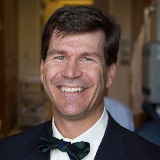
Chris Woods, MD, MPH, CMO, Biomeme

Dr. Woods is the Executive Director of the Hubert-Yeargan Center for Global Health; Associate Director of the Center for Applied Genomics and Precision Medicine; professor in the Departments of Medicine and Pathology at Duke University; an adjunct professor in Epidemiology at the University of North Carolina at Chapel Hill School of Public Health; and an adjunct professor in the Emerging Infections Program at the Duke-National University of Singapore Graduate Medical School. Clinically, he serves as Chief of Infectious Diseases Durham VA Health System. Dr. Woods has published over 210 peer-reviewed articles and has a particular interest in the diagnostic capacity in the developing world and the epidemiology of emerging and re-emerging infectious diseases. As an infectious diseases clinician and medical microbiologist, his approach to host genomic response has been called a paradigm shift in the field of infectious disease diagnostics.

Elsie Yu, PhD, Director, Clinical Pathology Informatics, System and Core Laboratory Director, Chemistry, Toxicology and Point-of-Care Testing, Geisinger Laboratory Medicine; Associate Professor, Geisinger Commonwealth School of Medicine

Dr. Elsie Yu is a Medical Laboratory Director at Geisinger Health System with a system leadership role in Clinical Chemistry, Immunology, Toxicology and Point-of-Care Testing. She is also a Clinical Associate Professor at Geisinger Commonwealth School of Medicine. In 2016, she was named “40 Under Forty Top Five” by American Society of Clinical Pathology. Outside of Geisinger, she has participated at various special project committees (e.g. CLSI, NKF and AACC committees) to promote proper laboratory utilization. Since she joined Geisinger in 2010, Geisinger has grown from a two- to nine-hospital system with over 80 clinics. During this rapid growth, she has integrated different hospitals and clinics to the Geisinger Health System through consolidation and standardization to enhance testing services. Her main interest is to improve laboratory test utilization and operational efficiency. Much of her work requires extensive collaboration with clinical providers to achieve system standardization and clinical effectiveness. Two such examples include her effort to - curb the opioid epidemic with enhanced urine drug testing program and decision support - improve ED throughput and transform cardiac care by implementing high sensitive troponin She earned her PhD in Cellular and Molecular Biology at University of Wisconsin – Madison, completed her clinical fellowship at Boston’s Children Hospital. She is board-certified by the American Board of Clinical Chemistry.
